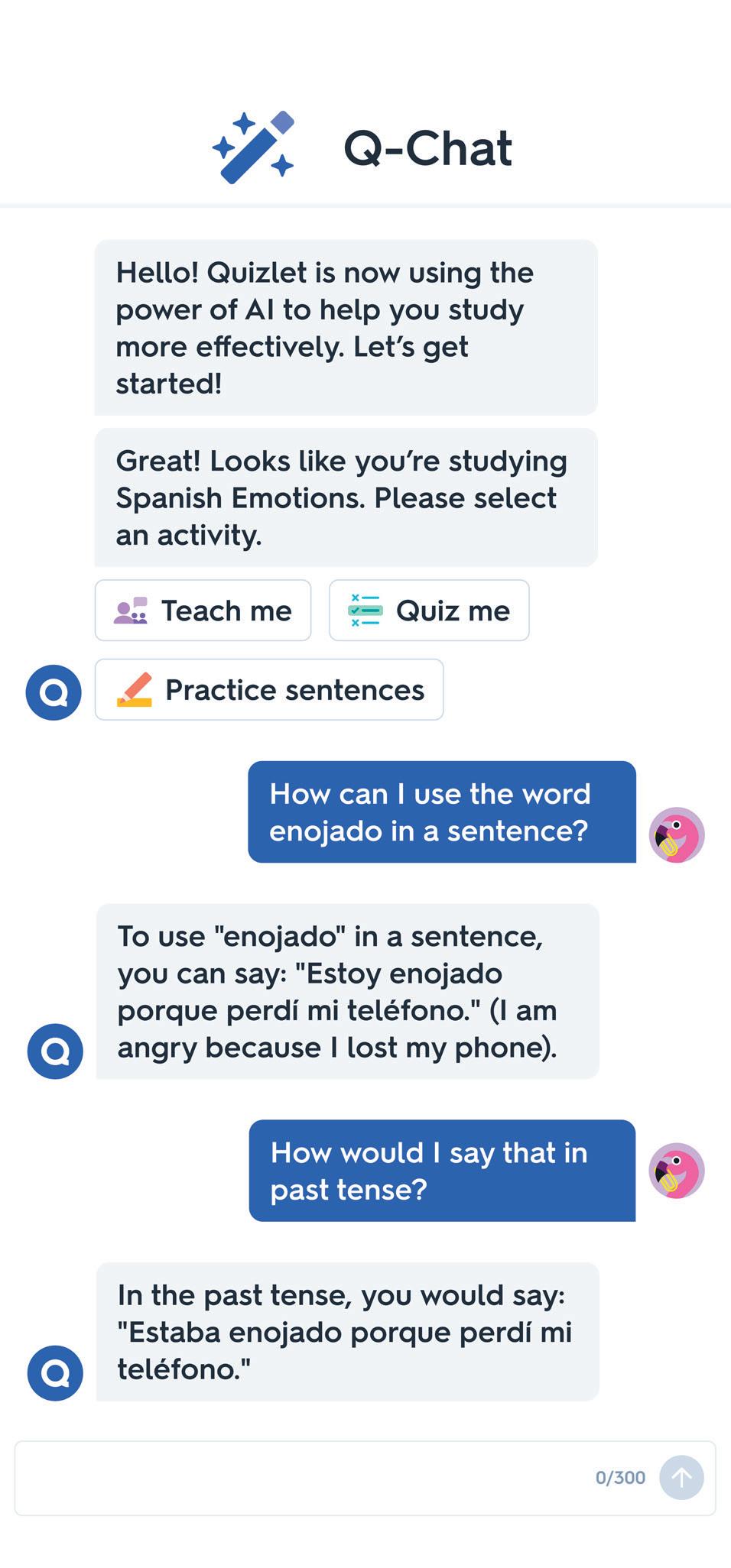The Chronicle
The independent news organization at Duke University

The independent news organization at Duke University
Simone Mashaal is taking pictures with her family in the East Campus backyard.
Mashaal, a first-year from Long Island, N.Y., has just moved into Randolph, and college is right around the corner. But first, it’s time to soak it all in and capture some memories with her family before she’s whisked away to begin her orientation program that evening.
Saturday marks move-in day for the Class of 2027 and the beginning of their Duke experience. Undergraduate students serving as Experiential Orientation program leaders blast music, welcoming first-years and their families as they pull up in cars to residence hall entrances.

As the sun shines down on the new Blue Devils, they hear “Mr. Brightside” by The Killers invariably playing outside their dorms. Orientation leaders yell “pop that trunk!” with the same level of palpable enthusiasm as each car drives up, and before anyone can blink, they have already begun transporting incoming students’ belongings to their rooms — no matter how heavy the items are.
None of this was new to Mashaal, though. Her older brother, Justin, is a Duke junior, so she experienced this very scene two years ago when the Class of 2025 moved in.
Still, she says that the morning’s energy was “really fun” with all the welcomes and the excitement surrounding the day.
For her father, Michael, the move-in process is like déjà vu.
“I’m a very proud father, as you can imagine, and to have two kids here is a dream,” said Michael Mashaal. Simone adds that she’s looking forward to going to college alongside her brother.
But this goodbye is harder for Michael.
“She’s my only daughter, my only girl, and I’ll be very upset to see her go,” he says.
Just across the sidewalk, a group of orientation leaders scurry about near Blackwell dorm. Tired, but still with a sense of radiant energy, they’re making themselves useful among all the organized
Duke doctoral candidates voted overwhelmingly in favor of an officially recognized union, with 1,000 ballots in favor of unionization and 131 against.
“Duke has always cared deeply about our graduate students, and we look forward to working with representatives of the Southern Region Workers United on the shared goal of making the graduate experience at Duke the very best it can be,” Provost Alec Gallimore wrote in a statement.
With National Labor Relations Board recognition, the union is required by law to be recognized by the University as the exclusive bargaining body for its doctoral students. The vote also marks the union as the first officially recognized graduate student union at a private university in the South, the largest union on Duke’s campus and one of the largest unions in North Carolina.
chaos. Sophomore Gabriel Reis is among them, and he’s been at it since 9:30 a.m.
He’ll continue hauling boxes until 2 p.m., when move-in ends — though as an orientation leader, his role is far from over. Reis and the other OLs will serve as mentors to first-years throughout O-Week.
“It’s very tiring,” Reis said, adding that he’s glad to see orientation from the other side. “But it’s also kind of emotional and cute. I remember moving in and remembering my family leaving me here.”
See MOVE-IN on Page 25
The Career Center tracked the Class of 2022’s post-grad career paths using a new data collection method.
By ZOE SPICER Features Managing Editor
The Career Center recently implemented a new initiative in hopes of answering this question, tracking students’ post-graduation decisions based on data collected from its senior survey, First Destination Data Collection, Handshake, LinkedIn and other sources.
Academic departments have historically had difficulty tracking students’ paths after graduation. Prior to this new data collection method, the University collected undergraduate outcomes only through the senior survey.
However, this data was often skewed because the senior survey was not mandatory, resulting in response rates below 65%, explained Greg Victory, assistant vice president of student affairs and Fannie Mitchell executive director of the Duke Career Center. The survey also failed to capture students who entered industries that did not hire until April or later.
The Career Center’s new data collection mechanism is significantly more comprehensive, with an 84% knowledge rate that includes information about students’ careers as late as the December after their graduation.
Although the Career Center only has data for the Class of 2022 so far, the results of the new data collection method offer a glimpse into the lives of Duke students post-graduation.
The top six graduate schools students attended include Stanford, Duke, Cambridge, Harvard, Columbia and the University of Chicago. The top five industries Duke students entered were technology (21%), finance (15%), business or management consulting (15%), healthcare and medicine (9%) and science or research (6%).
Of the students represented in the data, 90% said they were either employed or continuing their education post-graduation.
Following the beaten path
According to the Career Center’s data, more than half of the members of the
Class of 2022 who worked in industry immediately after graduation took jobs in technology, finance or consulting.
Victory believes that students often enter these fields after graduation because their recruiting processes are well-defined, leading to security in decision-making.
“I met a parent of a prospective student during Blue Devil Days who referred to [these industries] as car wash recruiting processes … once your car is aligned with that rail, the car wash pulls you through the rest of the way, and I thought that was actually a really brilliant way to explain it,” Victory said.
Victory says that Duke students’ postgraduation paths are often based on their familiarity with certain industries. Many students know what technology and business careers entail and that companies in these industries have many open positions geared towards recent college graduates.
William Julien, Trinity ‘23, arrived at Duke initially planning to follow the
The union’s most pressing demands include a cost-of-living-adjusted stipend, increased support for international students who must pay additional fees and face visa difficulties and reforms for the University’s harassment and discrimination grievance process.
The Duke Graduate Students Union has been operating as a direct-join union without NLRB recognition since 2017, after it withdrew its petition for unionization when the University challenged 502 of its ballots. There were only 14 challenged ballots at the Tuesday vote count.
“We are so proud of everyone who has been in this fight for our union at Duke since going back to 2016. Multiple generations of graduate students have fought for this ... not just the current union but the folks who have been at work for years and years,” said Matthew Thomas, fourth-year doctoral candidate in the English department and former co-chair of the DGSU.
The DGSU launched its second unionization campaign in September 2022 and filed for an election in March. In response, the University challenged a 2016 NRLB ruling that affirms the right for doctoral candidates to unionize as employees. Lisa Henderson, regional director for Region 10 of the NLRB, rejected Duke’s challenge in July and approved the union’s petition for an election.
INSIDE
Affinity spaces move down
Cultural affinity spaces will return to the bottom floor of the Bryan Center, though specifics remain unclear. PAGE 3
Meet Aaron Dinin
Dinin, Trinity ‘05, teaches Duke’s socalled Tiktok classes. Read more about his unconventional path to academia. PAGE 5
Lead found in Durham parks
The City’s August findings confirm the findings from a report published internally at Duke in December. PAGE 8









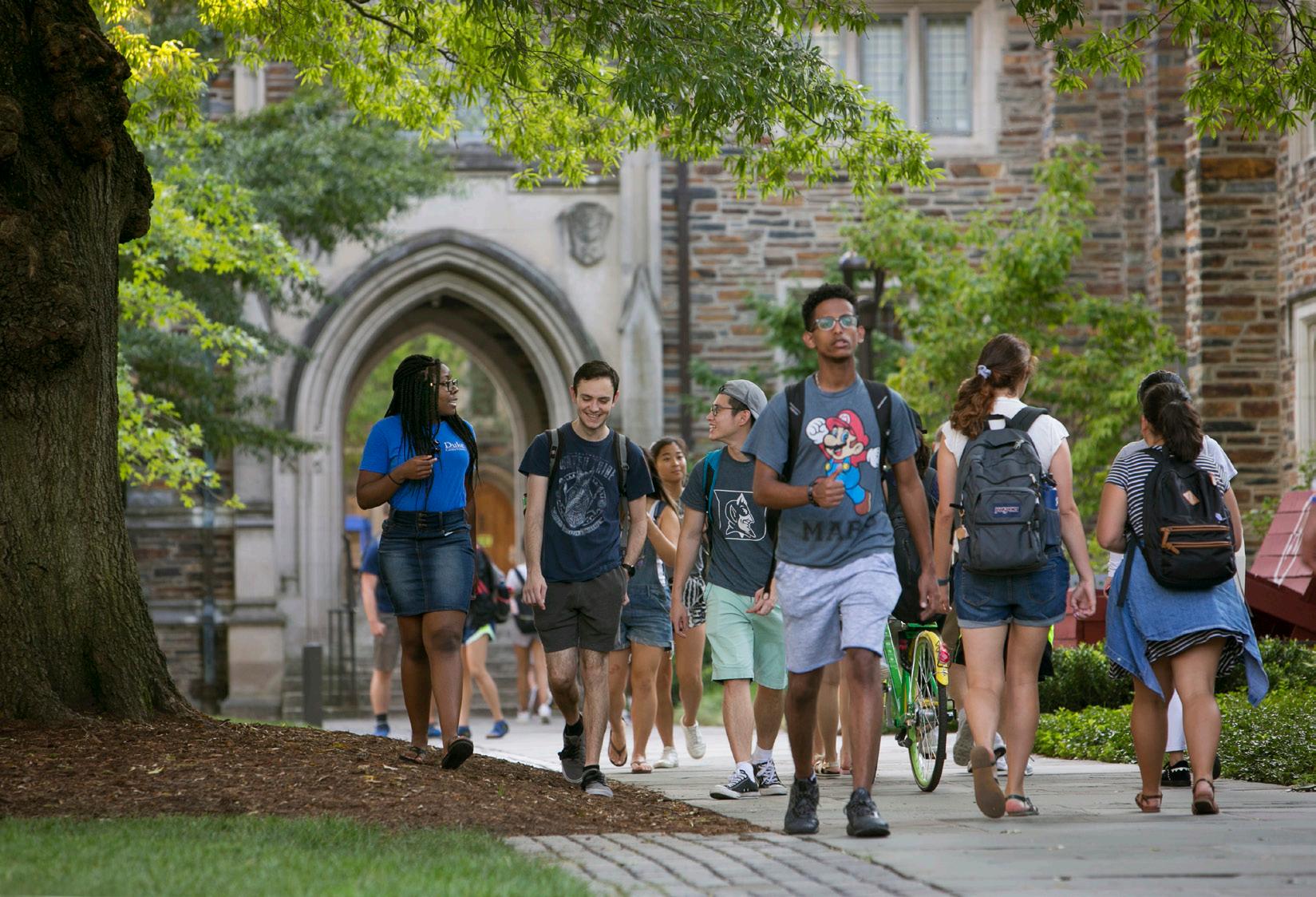
Cultural affinity spaces will return to the bottom floor of the Bryan Center in response to space concerns from affinity groups, after the University previously said it would reserve that space for the Career Center.
In October 2021, administrators announced that the Career Center would move to a suite on the bottom floor of the Bryan Center. The move sparked frustration among student leaders, who claimed that administrators previously promised the space to multiple affinity groups. Plans to move the Career Center to the bottom floor office were put on hold in November 2021.
In following meetings between student groups and administrators, student leaders advocated for individual office spaces and hoped to move the Center for Multicultural Affairs out of the bottom floor of the Bryan Center. In response to proposed renovations to the Bryan Center, affinity groups temporarily moved into the second floor during the summer of 2022, while the Career Center occupied the bottom floor.
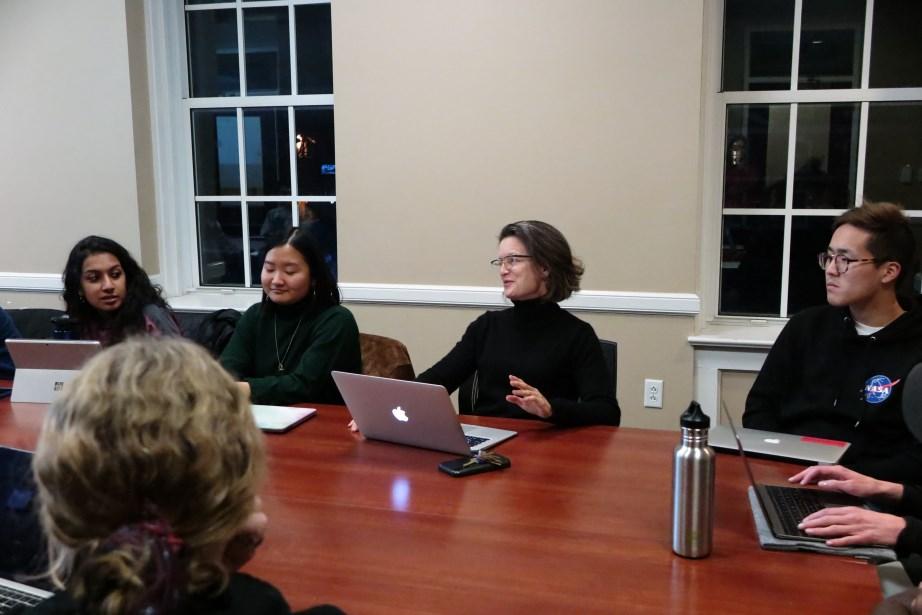
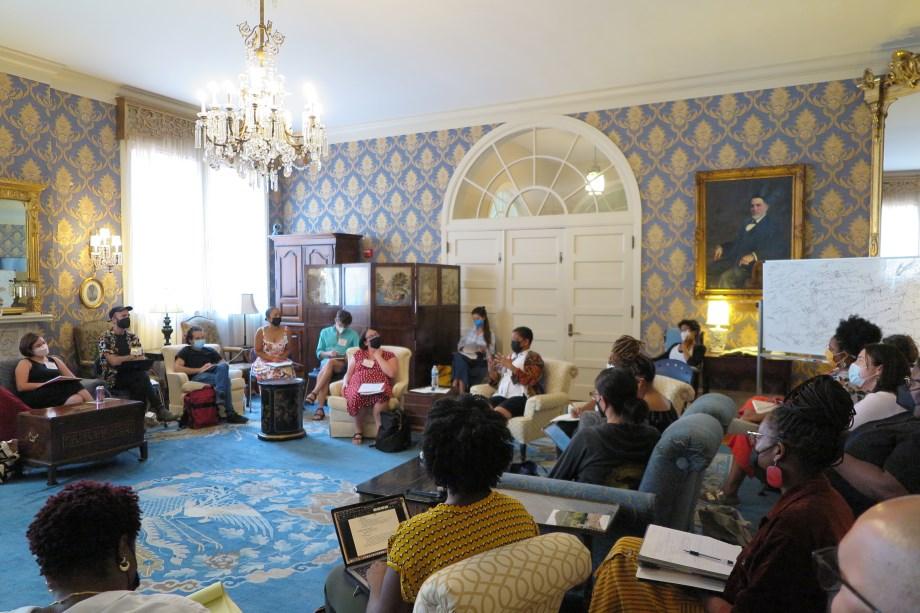
However, student leaders found throughout the 2022-23 school year that the new rooms they were assigned to were not conducive to building the communities they hoped for. Several affinity group members felt that their groups could not connect to or felt uncomfortable in the smaller spaces.

In a May meeting, the Space Advisory Committee, a group of student representatives dedicated to working with administrators to assess space allocation, recommended a move back to the bottom floor, according to an email to The Chronicle from Student Affairs.
The Career Center and Conference & Event Services team will move to the second floor.
The proposal was approved by Mary Pat McMahon, vice provost and vice president of student affairs, in late May.
However, specifics about the move are still unclear, to the confusion of some affinity group leaders.
“I think I’m still left in the dark still, or I really didn’t know what the school was planning or what is happening,” said junior Emily Ngo, the space representative for the Asian American Pacific Islander Bridge to Action, Solidarity and Education. “All I know is that we are moving down.”
Why now?



According to an email from Student Affairs, the move took place because secondfloor spaces did not “adequately [support] the programmatic and planning needs of our cultural affinity groups.”
“Students mentioned programming space that allows for large groups, space for small group gathering and coalition-building space. The first-floor areas provide more space overall and a significant increase in shared coalition-building space,” the email read.
While student groups could reserve a larger shared space for programming while on the second floor, the assigned rooms in the Cultural Affinity Space had limited space for programming and community building, according to sophomore Jaden Coward, the space representative for the Students of the Caribbean Association (SOCA).
Bre Barrett, a junior and president of SOCA, noted that the group often could not host more than 10 people in its rooms, which often came with office equipment that made it difficult to establish a “collective affinity space.”
Other student voices also called for increased visibility of affinity group spaces in accordance with historic demands from
affinity groups, although the execution of these demands feels imperfect.




Sophomore Mariana Meza, the space representative for La Casa, noted that affinity groups’ demands for visibility have “always been also in the larger context of a multicultural center, or a space that is just for these student groups and these cultural affinity spaces,” instead of a move to a specific floor.
Luz Ruby Valdes Pena, a junior and president of Mi Gente, pointed to demands from Latine student organizations, including demands for more Latinx faculty and staff representation, as a form of visibility.

Valdes believes that affinity groups’ demands for visibility were “flipped” by Duke in conversations about the Bryan Center to adhere to the University’s views on cultural affinity groups, misinterpreting the groups’ explicit demands in the process.
“When we were saying that we wanted to be visible, [Duke] sort of took it as like, ‘Okay, here you go. Second floor instead of first floor,’” Valdes said. “We’re visually seen, but we want to see ourselves more intentionally, in spaces where we aren’t present.”
According to Student Affairs, more details about the move, including a timeline and opening, will be made available in “coming weeks.” The Space Advisory Committee will continue to discuss changes to the design, allocation and use of affinity group spaces.
Coward, who was at the May meeting of the Space Advisory Committee discussing changes to the space, said that the committee
See AFFINITY SPACES on Page 25
www.gsfs.duke.edu




Aaron Dinin, Trinity ‘05 and lecturing fellow in the innovation and entrepreneurship initiative, has a bold vision.
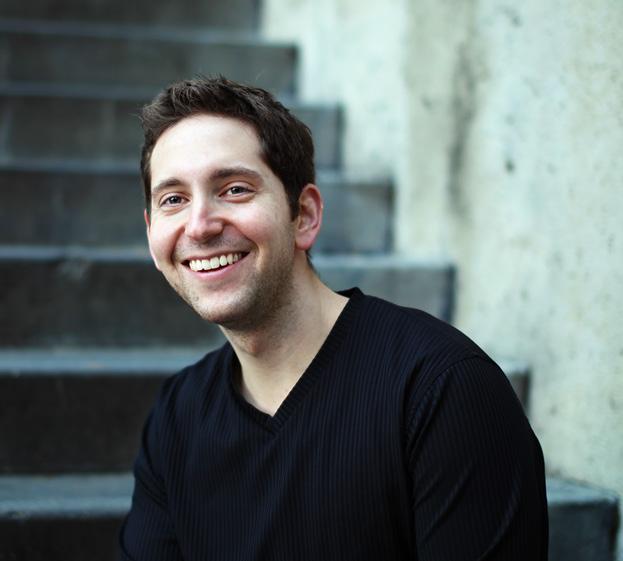
“My goal is to put Duke on the map if you want to learn about social media [and] content production,” he said. “If you want to learn about film you go to USC or NYU, but if you want to do social media content production, you come to Duke University.”
Dinin has previously taught two courses centered around social media and content production, and his so-called “TikTok classes” are spurring a social media frenzy. During spring 2023, his students’ content reached over a quarter of a billion people around the world, he said.
The first of Dinin’s classes, Innovation & Entrepreneurship 253, Social Marketing, provides a broad overview of social media, highlighting the “history and cultural lineage” of social media while delving into its ethical implications.
Innovation & Entrepreneurship 250, Building Global Audiences, is the more advanced course designed for students who are already building a personal brand and regularly posting on social media.
Enrolling in I&E 250 requires instructor consent. Dinin’s primary metric for determining admission is how consistently a student posts, rather than their follower count.
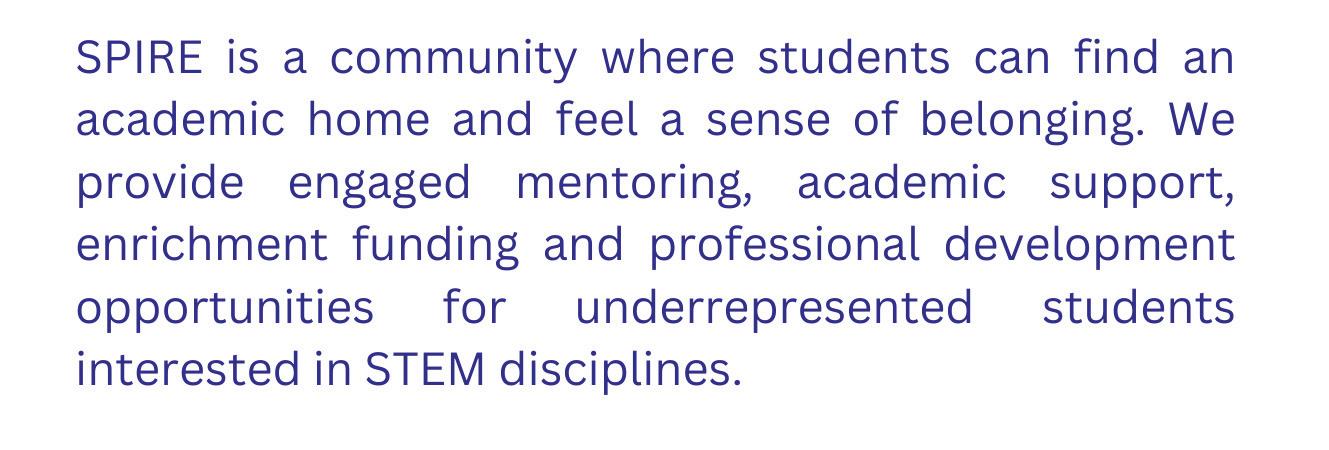
“It’s much easier to take somebody who’s got crummy content and help them figure
out how to make better content than it is to take someone who isn’t posting and get them to post regularly,” he said.
Through I&E 250, Dinin hopes to foster community among social media personalities at Duke, who may be “outcast[s] around campus.”


“The class helped me not just make better content, but also connect and collaborate with other creators,” said sophomore Nicole Dave, a TikTok creator who took Building Global Audiences this past spring. “Those relationships will definitely outlast the class itself.”
In fall 2023, Dinin will be teaching a third course, called Innovation & Entrepreneurship 295S, Arts Entrepreneurship. A partnership with Duke Arts and Duke Athletics, the course aims to introduce experienced content creators to the production side of social media.


Dinin said he will teach the new course alongside content creators for Duke men’s basketball, which has the largest social media following of all college sports.
From English literature to high tech
Dinin has taken an unconventional path to academia. Equipped with a bachelor’s degree in English, he initially envisioned a career as an English professor and the next “great American novelist.”
Shortly after graduating from Duke, he was accepted into an English language and literature doctoral program at the University of Maryland. Dinin, the self-described “worst grad student you can possibly imagine,” quipped that “they kicked [him] out with a Ph.D.”
Rather than becoming a novelist, Dinin grew interested in software development,
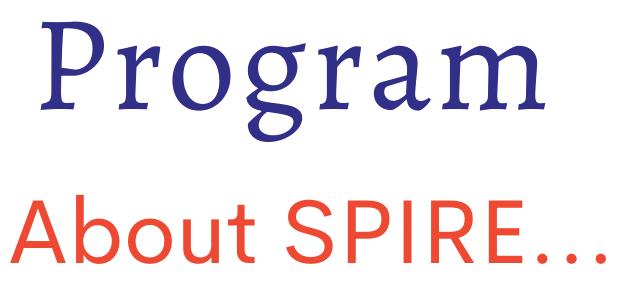
eventually working in the technology sector. Dinin taught himself to code because he “got annoyed” relying on other people.
Over the next decade, Dinin founded three venture-backed tech companies. He also participated in two high-profile startup accelerators, DreamIt Ventures and The Startup Factory, In 2012, he was named a Microsoft Fellow.
“You can kind of teach yourself anything,” Dinin said. “That’s one of the core messages I’d like to share to my students in entrepreneurship.”
Teaching and content creation

Dinin returned to Duke in 2018 after moving back to the area for his wife’s doctoral program at North Carolina State University. He began teaching marketing classes for the department of innovation and engineering, drawing on his personal background in entrepreneurship.
“You can build the greatest product in the world, but if nobody knows it exists,
it doesn’t matter,” he said. “So it turns out marketing [and] being able to reach people is wildly more important.”

Dinin decided to boost his credibility as a social media marketing professor by attempting to grow his own following after he realized that he lacked the “ability to speak with any sort of authority” about how to build an audience on social media.
In just a short time, Dinin amassed nearly 50,000 followers on Medium, a platform for long-form blogs. He now ranks as one of the most followed authors on the platform, particularly in entrepreneurship and business.
Dinin then turned to TikTok, where he racked up over 37,000 followers and six million likes posting university-related content. His most viral video has more than 17 million views.
“I got this fun rivalry with my students because every semester, I wound up putting out the TikTok that gets more [views] than all theirs,” he said. “The professor beat them out.”
Building a content creation community at Duke
Duke is already home to a host of seasoned content creators with large followings.
Senior Allison Chen has garnered more than 300,000 followers on TikTok, where she documents her life as a French pastry chef and cookie baker. Senior Natalia Hauser found her niche making lifestyle videos, amassing nearly a quarter of a million followers on TikTok. Meanwhile, smaller creators like juniors Sarah Muzzy and Catherine Esrey
See DININ on Page 25


Students across a range of different political backgrounds shared divided opinions about North Carolina’s new 12-week abortion ban. While some saw it as a step in the right direction, others worried about the ban’s implications for low-income women.
The Care for Women, Children and Families Act, which goes into effect July 1, passed into law after Republicans in the North Carolina General Assembly overrode Gov. Roy Cooper’s veto of the bill in May.
The act allows for exceptions up to 20 weeks for cases of rape and incest, up to 24 weeks for “life-limiting” fetal anomalies and has no limit if a physician deems a mother’s life in danger. The law requires in-person doctor visits to end abortions with a pill at 10 weeks.
Prior to the ban’s passage, North Carolina law prohibited abortions after 20 weeks, with exceptions for medical emergencies. However, the law had not been enforced since 2019, allowing abortions until “fetal viability,” which is the point when a human fetus can survive outside the uterus and generally occurs between 23 and 24 weeks.
For junior Dena Levin, co-president of Duke’s chapter of Planned Parenthood Generation Action, the ban came as no surprise given the results of the 2022 midterm elections. In November, North Carolina House Republicans fell one seat short of a supermajority in the midterm election. The Republican Party gained a supermajority after North Carolina Rep. Tricia Cotham changed her party affiliation from Democrat to Republican in April.
“It’s also really terrifying because North Carolina still does serve as a hub for a lot of women across the South to receive abortions,” she said. “The fact that the time that they’re able to receive [an abortion] has been cut by so much is honestly just really scary for a lot of low-income women, women who are in domestically abusive relationships [and] minors.”
Sophomore Sherman Criner, a North Carolina native, was also not surprised by the implementation of the new legislation, citing recent right-leaning trends among the state’s voters. Criner believes that the election of ardently pro-life Lieutenant Gov. Mark Robinson and former President Donald Trump’s victories in North Carolina in both the 2016 and 2020 elections hint that the state is “becoming increasingly red.”
“I can’t really say I’m that surprised, but I can see why a lot of Duke students are surprised, especially being in Durham,” Criner said, referring to how 80.4% of Durham County residents voted in favor of President Joseph Biden in the 2020 election.
Criner supports the new ban, calling it “a step in the right direction.” However, he believes
that the 12-week limit is more of a compromise than many Republicans initially wanted and that the 20-week and 24-week exception periods included in the bill are “kind of arbitrary.”
While he would support a full abortion ban with limited exceptions, Criner notes that it would need to be paired with a robust adoption system. Criner pointed to the roughly $160 million in spending contained within the legislation for maternal health services, foster and adoption care and contraceptive access. He feels that these features in the bill are “really helpful” but not widely known.
Junior Rachel Kitto, a member of Duke Sexual Harassment and Assault Prevention & Education, pointed out that socioeconomic inequalities are inherent in the 12-week ban, even with support given to maternal health services and foster care.
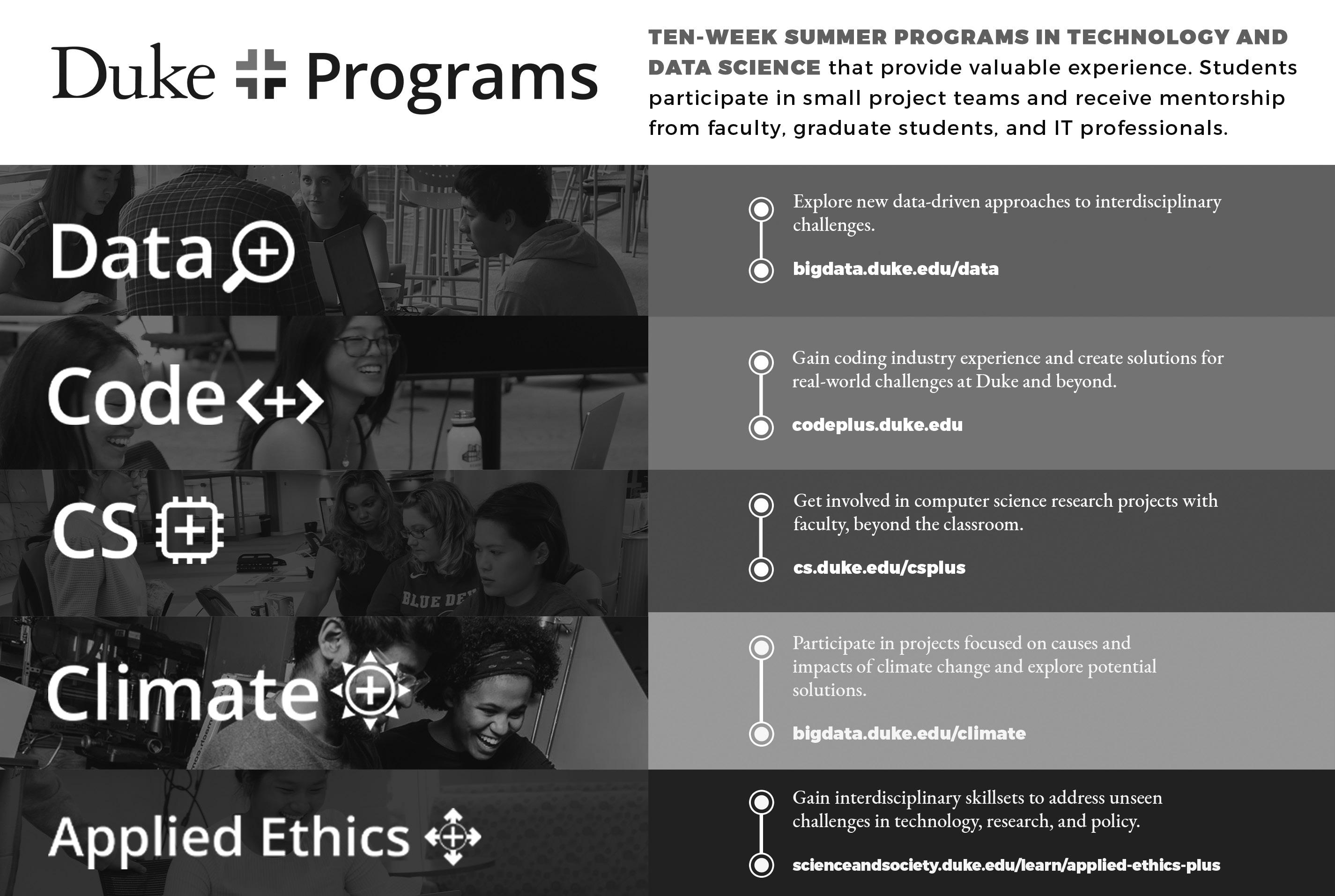
“I think that any restrictions on reproductive health are targeted at people who are socioeconomically disadvantaged,” Kitto said. “It’s bad, but it’s bad for a number of reasons. Typically, the states that are the most restrictive when it comes to reproductive rights tend to also be the ones that care the least and provide the least for children.”
While she does not believe in banning abortion under any circumstances, Kitto thinks that states seeking to ban abortion are “morally required” to “completely up their game with social welfare.” She does not believe states that have passed abortion laws have done so.
According to Kitto, banning abortion reveals a “democratic backsliding,” especially regarding the rights of women and non-cisgender men. Her work with
SHAPE has made it “even more apparent” that these groups “are constantly put in this subjugated position,” she said.
Like Criner, sophomore Zander Pitrus supports the ban but believes the timeframe of 12 weeks was a “fettered compromise.”
“It still needs to be reduced,” Pitrus said. “Twelve weeks is a long time, and during this period of 12 weeks, the heartbeat is heard, the baby’s body structure and organ systems develop and the brain can be seen.”
Commenting on the bill’s exceptions to the 12-week ban, Pitrus added that abortions due primarily to cases of rape or incest make up less than 1% of all abortions. He pointed to a 2008 study reporting that half of all abortion patients reported having one or more prior abortions, although more recent data from 2021 reports that 58% of women who have an abortion are doing so for the first time.
Kitto concluded that the 12-week ban made her feel like the country was “backpedaling.”
“It’s ironically funny in a very sad way that America considers itself this huge leader in democracy, economy, science and whatnot,” Kitto said. “And then now we’re taking steps to actively reverse the progress that as a country, over so many decades, we have made.”
Jazper Lu contributed reporting.
“It still needs to be reduced ... Twelve weeks is a long time.”
“I think that any restrictions on reproductive health are targeted at people who are disadvantaged.”socioeconomically
The findings confirm a Duke student’s report from December, but the City began testing in July. The parks, located in historically Black communities, are now fenced off.
By ADWAY WADEKAR and AUDREY PATTERSON News Editor and Local/National News EditorMonths after Duke researchers discovered high lead levels in three Durham parks located in historically Black neighborhoods, the City is taking action.
According to a memo released by the City on Aug. 3, samples from East Durham Park, Walltown Park and an area in East End Park that is not accessible to the public contain lead levels above the U.S. Environmental Protection Agency’s maximum threshold.
These findings confirm a December report by former master’s student Enikoe Bihari, Nicholas ‘22, in a paper supervised by Dan Richter, professor of soils and forest ecology at the Nicholas School of the Environment.
The June community meeting
The community association of the Walltown neighborhood held a meeting on June 12 to discuss the December findings.
According to the Walltown Community Association, neither the City nor Duke ever notified residents about the findings directly from the parks, and it was the independent discovery of the master’s project report by a Walltown resident that prompted the WCA to contact Richter for initial talks.
Richter spoke at the community meeting, explaining how his various studies of lead hotspots had prompted him to take a closer look at Durham parks that were built over nowdefunct waste incinerators from the late 1930s.
The report indicated that the median lead level in the soil across the three parks was 93 parts per million, with the average being 201 parts per million. East Durham Park, which is located near an apartment building, had lead levels ranging from 694 to 2,342 parts per million.
During the meeting, Richter suggested that the City add fencing along the parks’ creeksides and bury the contaminated surfaces with clean soil to allow new grass to grow on top. He also suggested that the City invest in X-ray fluorescent screenings for all parks older than 1960.
The WCA believes that the University had a duty to report the findings to neighborhood residents at the time of discovery. Richter said that he had reported similar findings about lead levels in Durham from prior research papers to city officials. He added that it was the City that gave Richter access to public land for research purposes for the parks research, but that the findings had not been peer-reviewed yet, which is usually standard practice before circulating results widely.
Richter had alerted two top City parks officials, Tom Dawson and Robert Jennings, as early as November 2022 and contacted them throughout the spring with “increasing levels of urgency.” On June 5, Durham Parks Director Wade Walcutt asked Toddi Steelman, dean of the Nicholas School of the Environment, not to disclose the data to the public until the city had cleared it, but Steelman declined.
Richter said that he allowed the circulation to happen before peer review because of the
results and his concern and that he and Bahari are in the process of converting the report into a peer-reviewed document.
“I’m an individual scientist in my laboratory, and I’m very anxious to get my science circulating through our communities through all the neighborhoods of the city,” Richter said. “Our student paper is being circulated. It needs to have the credence that peer review gives it, and short of that it’ll be one piece of the bigger puzzle.”
Following the meeting, the City hired Mid-Atlantic Associates, an engineering and environmental consulting firm, and created a timeline to begin formal testing of soil samples taken from Durham’s playground areas, Lyon

Park, Northgate Park, East End Park, East Durham Park and Walltown Park.
These tests intended to “build upon the data initially collected by the former Duke student by going beyond their initial research and using industry best practice tools and methodology approved and supported by the EPA and the NCDEQ.”
Based on the preliminary findings, the City has erected fences and “detailed signs” in the sample areas with dangerously high lead levels. The City will also hold three “in-person community conversations and engagement opportunities,” according to the memo.
Soil collection began the week of July 17 and has now concluded. The samples are currently undergoing laboratory analysis to “provide precise conclusions.”
Duke professor files discrimination lawsuit alleging unequal pay, subsequent retaliation
BY AUDREY WANG AND JAZPER LU | 08/16/2023Rachel Lance, an assistant consulting professor, alleges that Duke pays her significantly less than her male colleagues and that she faced retaliation for her complaints.
NC General Assembly overrides veto, bars trans women and girls from competing in sports ‘designated for females’
BY ANDREW LONG AND JAZPER LU | 08/16/2023The law prohibits students “of the male sex” from playing on middle, high school and collegiate athletic teams “designated for females, women, or girls.”

The big secret about sex, Leo Bersani writes in his 1987 essay “Is the Rectum a Grave?,” is that most people don’t like it. And this is true, he says, even for those who seem most capable of embracing their own sexual impulses, including, say, the most enthusiastic proponents of polysexuality with multiple sex partners. In saying this, Bersani intimates that there is nothing more disorienting and boundary-breaking to our selves than the truth of our sexual desire. Or we can say with Bersani that desire disrupts and dissolves the coherence of any stable identity, causing the “shattering of the psychic structures themselves.”
What Amber Bain’s second studio album, “In the End It Always Does,” would have us confront is this messy and disorganizing force of desire. While the lead-off track “Spot Dog” limns the height of a loving relationship, modeled allusively on the throuple that Bain entered into during the pandemic lockdown, the rest of the album attests to the emotional turmoil of having these relationships come to an end. The transgressive and self-shattering desire evoked by loss and heartbreak – transgressive because Bain “know[s] [she] shouldn’t want it,” self-shattering because it “makes [her] wanna die every time” – makes its presence felt on “Touching Yourself,” for instance, as the wish to picture her ex-partner caressing herself, a wish whose blind insistence breaks down any defenses she attempts to conjure up.
“In the End” is, to be sure, an album about loss, despair, mourning and the frustration of failing to obtain one’s object of desire. But what is so distinctive about Bain’s production, in my opinion, is the playful exuberance with which she broaches the vicissitude of her desire. Notably, the use of the synthesizer on tracks such as “Over There,” “Boyhood” and “Sun-
shine Baby” not only serves as a welcome supplement to her laid-back and sultry vocal performance but, in virtue of its effervescence, also provides the somber and wistful lyrics with a much more nuanced affective tone. In these songs, Eric Mason has observed, “vocal hooks [take] a backseat to highly textured folktronica instrumentation and a more impressionistic rendering of desire.”
On this point, let us turn to my favorite track, “Sunshine Baby,” in which the wonderfully mournful hook – “I don’t know what’s right anymore/I don’t want to fight anymore” – is juxtaposed with zestful instrumentation as the song reaches its climax. The lyrics may labor to show us the way in which desire is, in Jamieson Webster’s words, “sometimes felt as a curse” because it disrupts our moral sense, but the thrust of the synthladen instrumentation, performing a significant labor of its own, represents the ineffable pleasure-in-pain which renders this desire-as-curse itself desirable. Here, the melody both literalizes and elicits what Bersani has called the “ecstatic suffering into which the human organism momentarily plunges when it is ‘pressed’ beyond a certain threshold of endurance.” And, as if to anticipate this climactic moment of catharsis in which sensory pleasure and self-shattering converge, Bain tells us to “hold on to this feeling ‘cause/you won’t feel it for long.” This is Amber Bain at her best: even
as she fails to make good on her losses in and through “In the End,” her music is itself an aesthetic education in how to take pleasure in, rather than subdue, the unbearable desire incited by irremediable losses.
Another recurring theme of “In the End” is its meditation on the repetitiveness of desire, in the sense of returning to the same person and situation over and over again. On tracks such as “Morning Pages,” “Indexical reminder of a morning well spent,” and “One for sorrow, two for Joni Jones,” where acoustic guitar and piano take center stage and create a cozy, dreamy ambiance, we encounter, in ever-renewed forms, Bain’s candid admission and heartfelt acceptance of her inability to find anyone other than the person she has lost.
“But wait for a second, it always comes back to her/You always comes back to her:” we might hear, in this excerpt from “Morning Pages,” echos of Serge Leclair’s gloss on desire in his book “Psychanalyser” –that desire “aims more at insisting, at repeating itself enigmatically than at saturating, gratifying or suturing itself in some fashion.” This motif of repetition is ubiquitous in “In the End,” so much so that we might wonder, if desire is invariably the desire for the old, whether singing about desire’s incapacity for novelty can lead to something new.
I want to end by dwelling briefly on the way in which the album cover, too, captures the idea of coming full circle. The mark of the blue crayon, like the movement of “In the End,” traces the vain detour taken by desire, only to circle around a void and begin anew on its old path. This detour, as “In the End” shows us, is one that never ceases to disturb, disorient and queer us. But Amber Bain’s music – even as it does not shy away from delivering emotional gut punches at certain moments – nevertheless manages to secure a mode of enjoyment proper to this shattering of the self.
 Courtesy of Pitchfork
The Japanese House ‘s second studio album confonts the messiness of love.
Courtesy of Pitchfork
The Japanese House ‘s second studio album confonts the messiness of love.
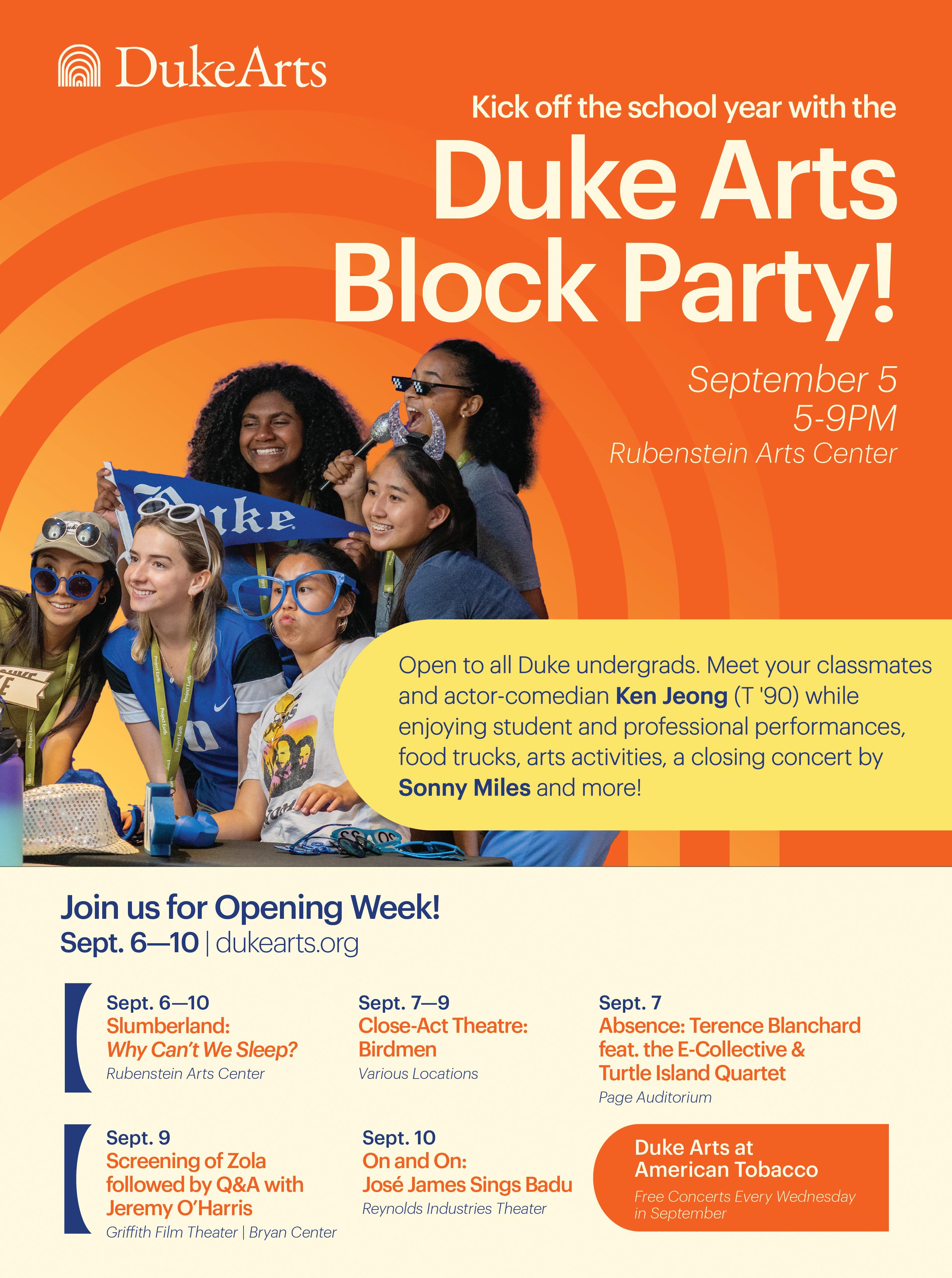


 By Alex Leo-Guerra Contributor
By Alex Leo-Guerra Contributor

A few minutes past 7 p.m., the sound of a spoon tapping on glass echoes through the NorthStar Church of the Arts in Old North Durham. At long tables that line the dimly lit space, people coming from all over the Triangle sit beside strangers who will become new friends by the end of the evening. As a voice welcomes everyone to tonight’s event, people smile with anticipation for the gastronomic journey ahead of them. Some are attending for the first time, and some will call this their 50th event. One thing’s for sure: this is one of the most remarkable experiences one can undergo in the Triangle, and every individual will leave this once-holy hall having experienced, learned, and appreciated something new. Next month, this adventure will be replicated somewhere else — perhaps at a vintage car collector club, Lake Raleigh or within a tree-lined forest. Wherever it may be, you’ll be taken on an inimitable voyage through food, and one that leaves you more aware of the many ingredients that make a meal excellent.
Welcome to Snap Pea.
Pop-up dining isn’t an unfamiliar concept in the culinary world. International dining phenom Outstanding in the Field has been hosting their roving dinners, which they deem “radical alternatives to the conventional dining experience,” since 1999. You can find
operations that mirror their lavish tasting menu-centric approach all over the United States. More common nowadays are more affordable pop-up experiences, often stemming from reduced options at the beginning of the pandemic. Businesses like Queens, NY-based superstar Pecking House turned fried chicken into a delivery sensation and later opened a full-blown restaurant. Los Angeles-based Calabama turned a bucket into a breakfast sandwich delivery vessel from Chef Cara Haltiwanger’s 5th-story apartment, still going strong every Sunday.
Snap Pea’s humble origins are a bit different. They aren’t traced back to conventional kitchens, but rather to a class assignment. What you may not assume about the chef of a dining pop-up experience is that they attained and achieved a world-class education.
For California-born and New Zealand/ Chapel Hill-bred chef Jacob Boehm, it came through a bachelor’s in Music from Stanford University. Determined to complete an assignment for one of his classes with the most creative approach possible, he presented his final project by cooking a meal for his classmates and professor. It wasn’t the best by any means — in fact, Boehm knows that it was one of the least sophisticated (albeit memorable) meals he’s put together — but the joy that his food brought those who were fortunate enough to eat it acted as a boon to his future prospects. It planted Snap Pea’s seed in his mind and gave him reason to believe that he could turn this pas-
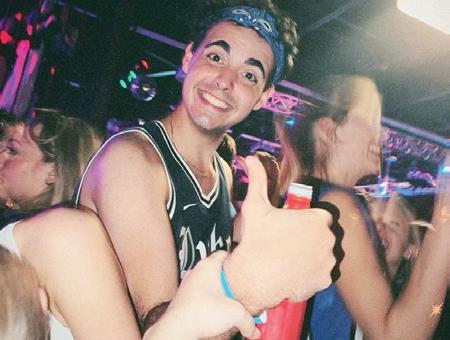
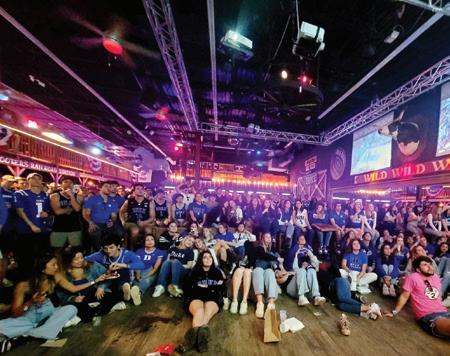




sion into a career. After growing up surrounded by family with a passion for food and being transformed by a world-class education, being able to compose an experience where he could serve guests meals that not only left them full but with new ideas and memories would be a natural next step.
But Boehm didn’t hop into this world immediately. Before Snap Pea, he worked in marketing for a wastewater treatment technology company and some jobs at various restaurants. He later moved back to North Carolina, and within a few years of graduating from Stanford, he began to scale Snap Pea to make it become something greater than anything he had produced before. He figured that he would make the events a monthly occurrence — an
arbitrary choice, but one that he carried with him until he realized that this was something he could make a career of. The pop-ups picked up steam. They sold out in minutes, then seconds, and to this day you’ll need to have fingers that move at remarkable speeds to successfully reserve a seat at a Snap Pea dinner. But if you secure a ticket, you’ll be treated to an experience unlike anything else you can find in the Triangle.
In many ways, a tasting menu is the pinnacle experience in the world of dining — an adventure of myriad flavors, textures and sensations. Snap Pea creates one that not only excels in how
See SNAP PEA on Page 13

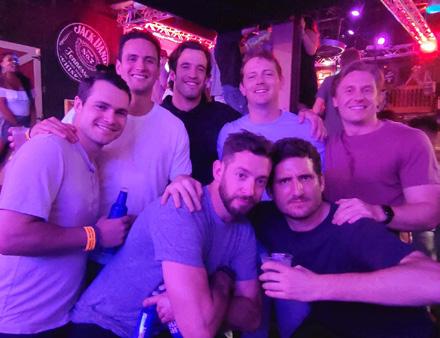
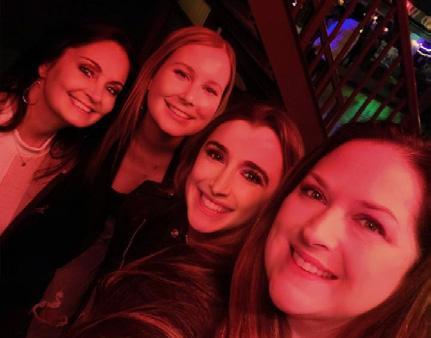

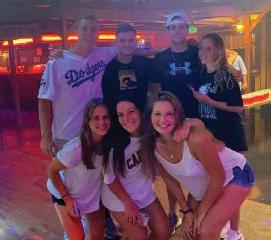 Alex Leo-Guerra
A meal prepared at Snap Pea.
Alex Leo-Guerra
A meal prepared at Snap Pea.


FROM PAGE 11
it approaches taste but also in the ideas it expresses. Every ingredient is well thought-out, and each component of your meal is sourced locally. This brings about a hyper-seasonality that makes dinner an exercise in dynamic storytelling grounded in the bounty of the season. Perhaps more excitingly, the place where you enjoy your dinner shapes the story you’re told throughout the evening.
A course on one evening was titled “1972 Porche 911,” while on a different evening, I was relishing “Camp Polk Prison Farm,” and during a separate dinner I enjoyed “Pleasure Activism Book Event.” Appropriately, these courses tell stories. The ingredients themselves may come full of history through where they were farmed and the people who decided to grow them, but beyond this, each course comes with a lesson in components of the place where you’re eating.
In the aforementioned 1972 Porsche 911 course at a recent dinner, Jacob described how the car’s engines are located in its back and are air-cooled, differentiating it from other cars. He took this unique characteristic to make a fried rice course. He explained that you want to use rice that has had the opportunity to air cool (get it?), and so he used Carolina Gold rice, cooked it, and spread it out on sheet pans to allow it to get as much air cooling as possible to dry out. On-site, he used aromatic tomato juice from preserved and roasted San Marza-
no tomatoes to cook the rice. It caramelizes in the pan to add extra depth. He then adds hakurei turnips, crisp, juicy and freshly retrieved from Wild Scallion farms at the Durham Farmers’ Market. He explained that farmers like hakurei turnips because they grow quickly and are crisp and juicy upon harvest. Some foraged mushrooms are served beside the rice, which came from Jacob’s forager friend who stumbled upon them on the day of the event and showed up at his door to provide them to him for free. Caramelized onions and eggs cooked at precisely 62 degrees Fahrenheit in an immersion circulator grace the dish, and upon first bite, you realize how special it is that this one course came together through heat, patience, and friendship. Where else can such an intricate story be part of the experience?
Laughter fills the dining room throughout the evening as Jacob describes each course with humor and grace. We all experience his natural

Jessica Alvarez
Ruth Amare
Akilah Bailey
Jasmine Cuevas-Lopez
D'Asia Evans
Makayla Gilzean
Ameer Haidary

Maria Junaid
Katie Li
Katherine Maddock
Sydney McDaniel
Annie Nam
Courage Ndalama
Andrea Owusu
Carmen Pastrana
Sanoe Rapozo
N’Avea Saint Louis

Angela Xiong
storytelling abilities and become more and more invested in how these ingredients got from farm to kitchen, savoring each of our bites as a celebration of the hard work and determination that allows our food to arrive at our plates and the skill needed to prepare ingredients to such a high regard. We chat with neighbors as we appreciate and dissect the layers of flavors within our courses, telling stories about our experiences at past events and what compelled us to invest in a meal like this.
Speak with the team of chefs, dishwashers and servers that allow these magical events to take place, and you can conclude that such an operation is not only magic for the guests but also for those working their magic in the front and back of the house. Jacob, according to each Snap Pea employee that I spoke with, leads the operation with a sense of poise and determination. Brad Brown, one of the team members, speaks highly of Jacob. “He’s good at finding solutions
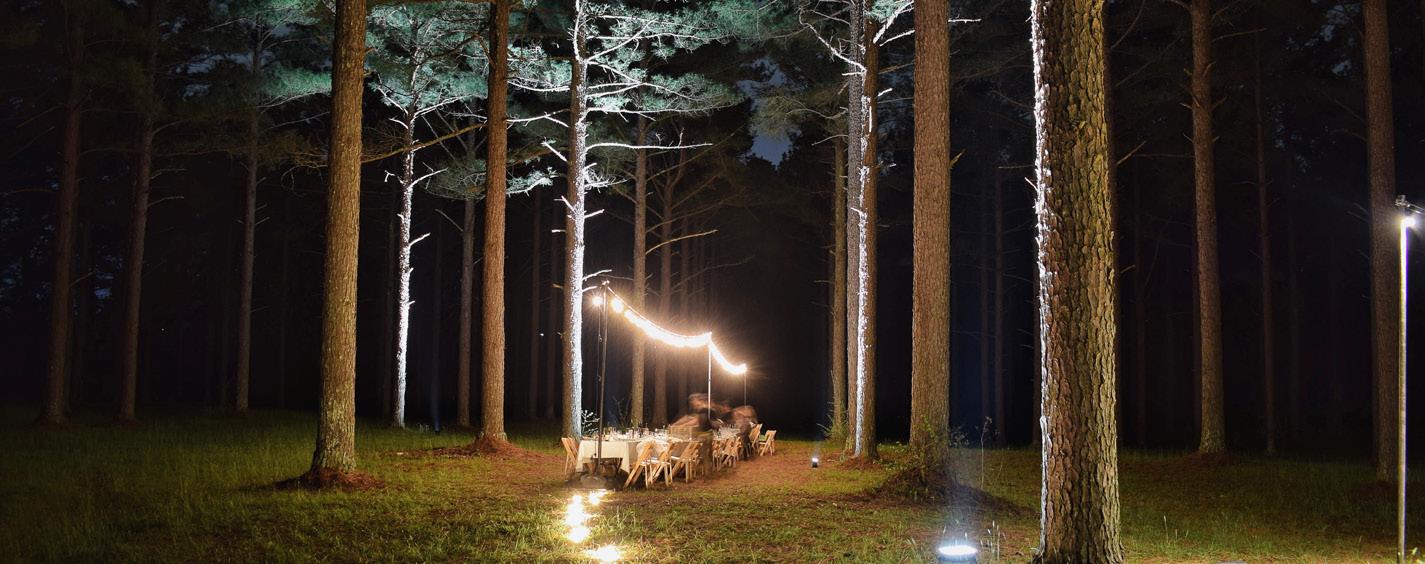
and controlling emotions,” he told me after one dinner. “People like being around him.” Speaking with another team member, Donna, further accentuated how he’s truly someone special compared to the stereotypical tempered head chefs that have a bad reputation in the culinary world. “Finding [Boehm] was amazing,” she said. “He was like a breath of fresh air... He’s just a great guy. I don’t think I’ve worked for a better guy. I love doing this.”
At the end of the meal, a round of applause breaks out. We learned about how food is so much more than a recipe —- how beyond the people preparing it for us, it’s about the stories that shape their journey from idea to plate. How techniques with long and storied histories result in an extraordinary method of making something delicious and desirable in taste and texture. How the ingredients that nourish us come from farmers who are truly invested in producing crops that outshine the rest on the markets - fruit, vegetable, grain or otherwise. How, despite everything happening around us, all these individuals with amazing and inspirational stories managed to gather around a remarkably long table for a few hours to forget our worries and let the food we all ate whisk us away to new worlds.
As the meal closes, Chef Boehm says, “I can’t wait to do it again sometime soon.” Neither can we. And whether it’s in a planetarium, a nature preserve or somewhere just as special, the journey we will experience together will be one of the most remarkable experiences we’ll undergo here – and, maybe, anywhere.
Alex Leo-Guerra One of many Snap Pea pop-up locations.

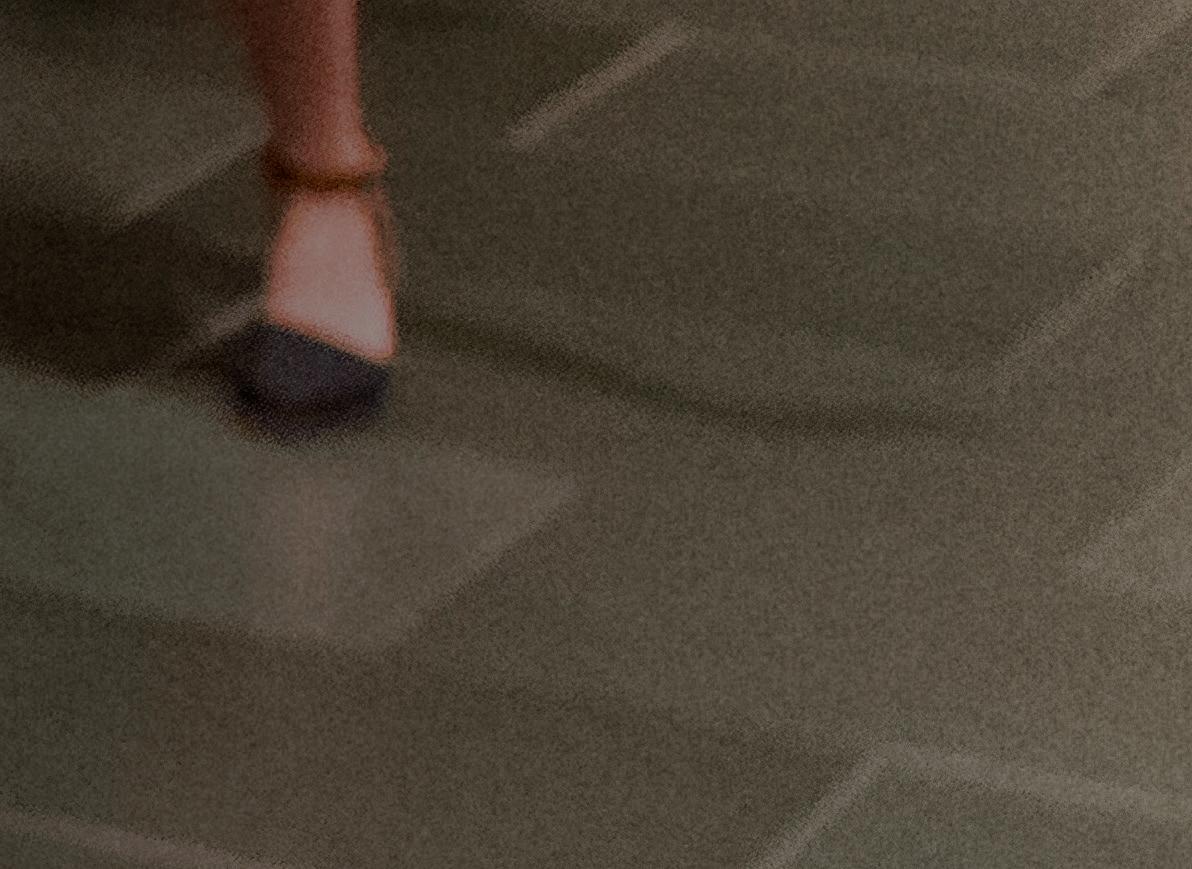


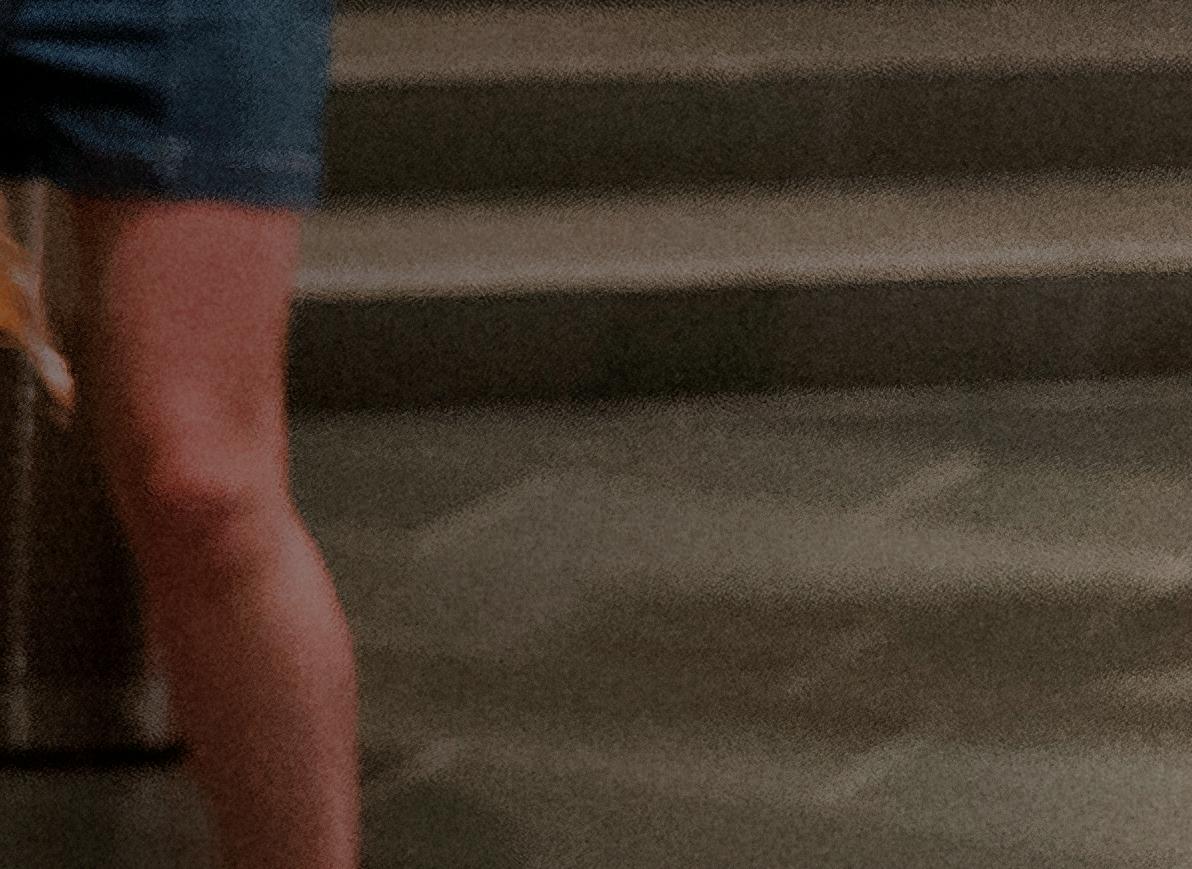
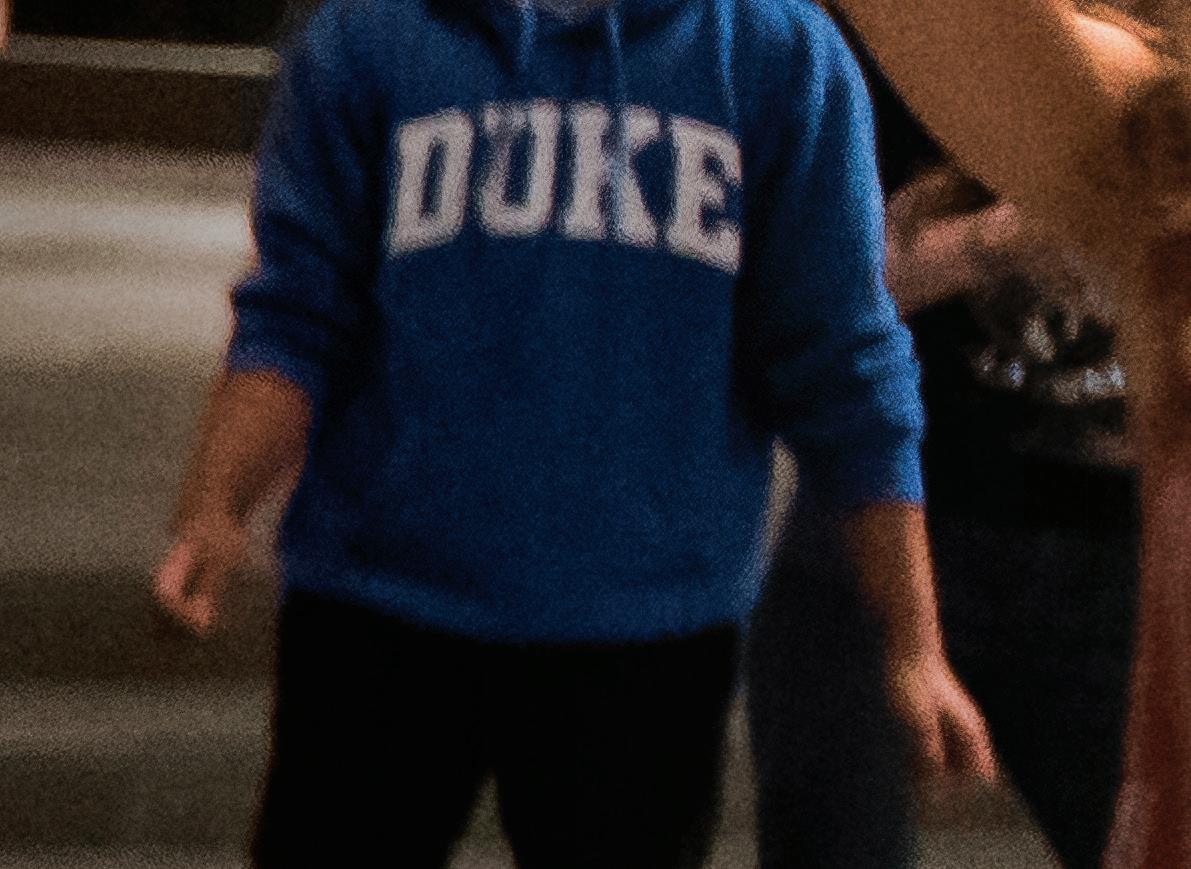
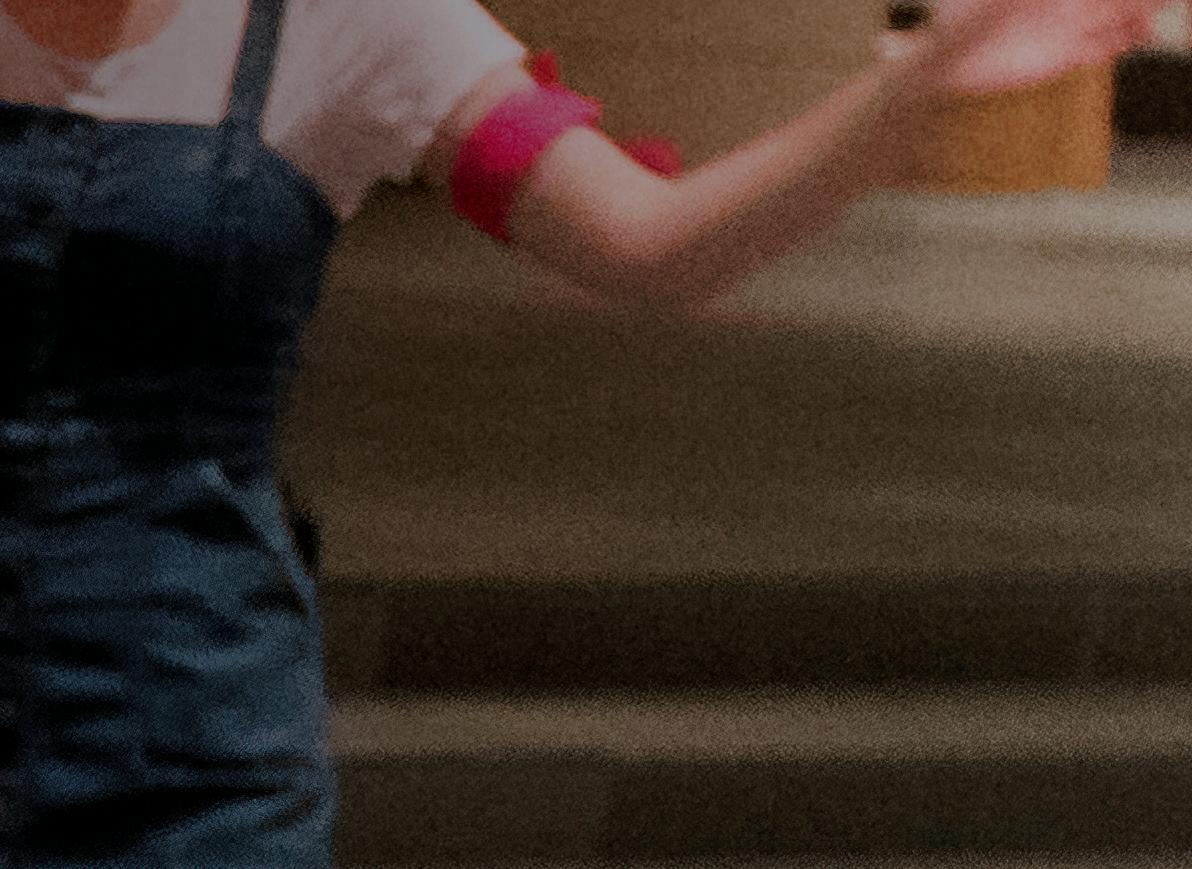

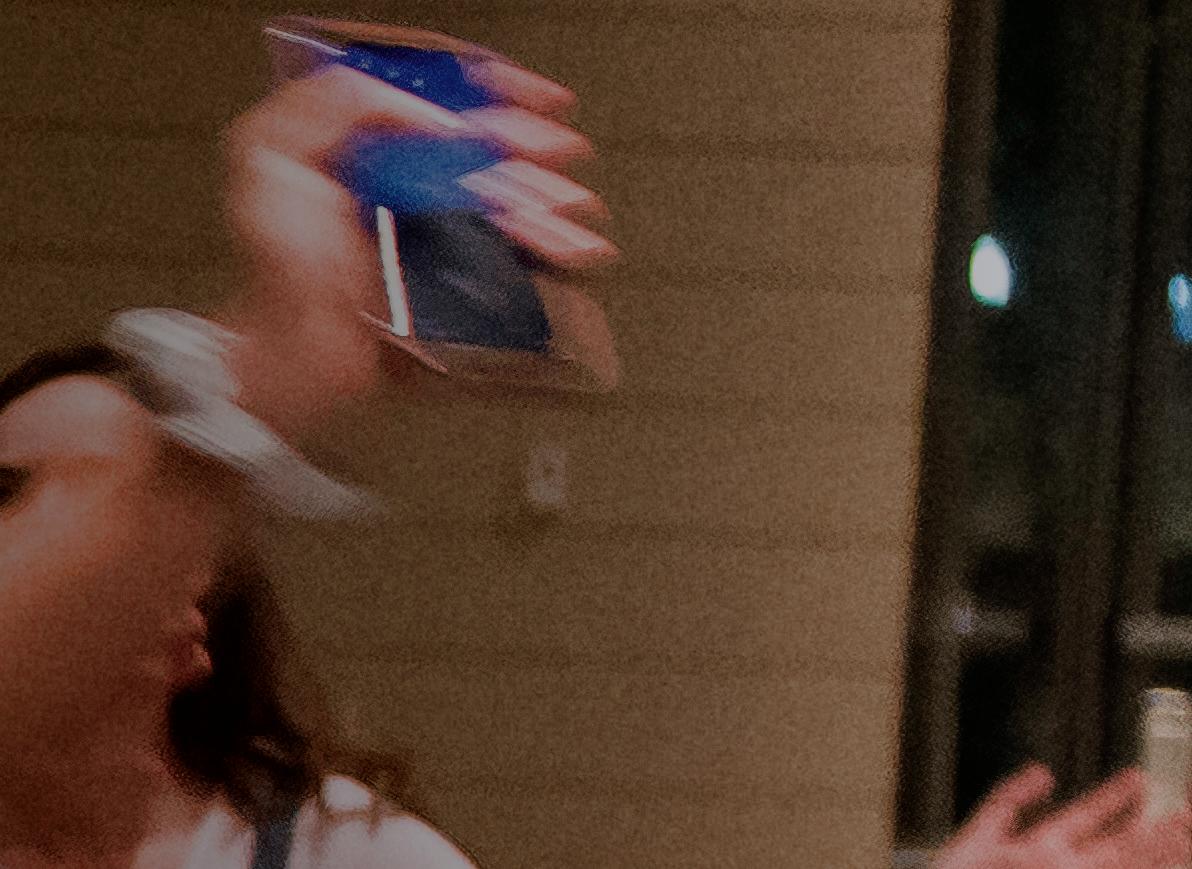
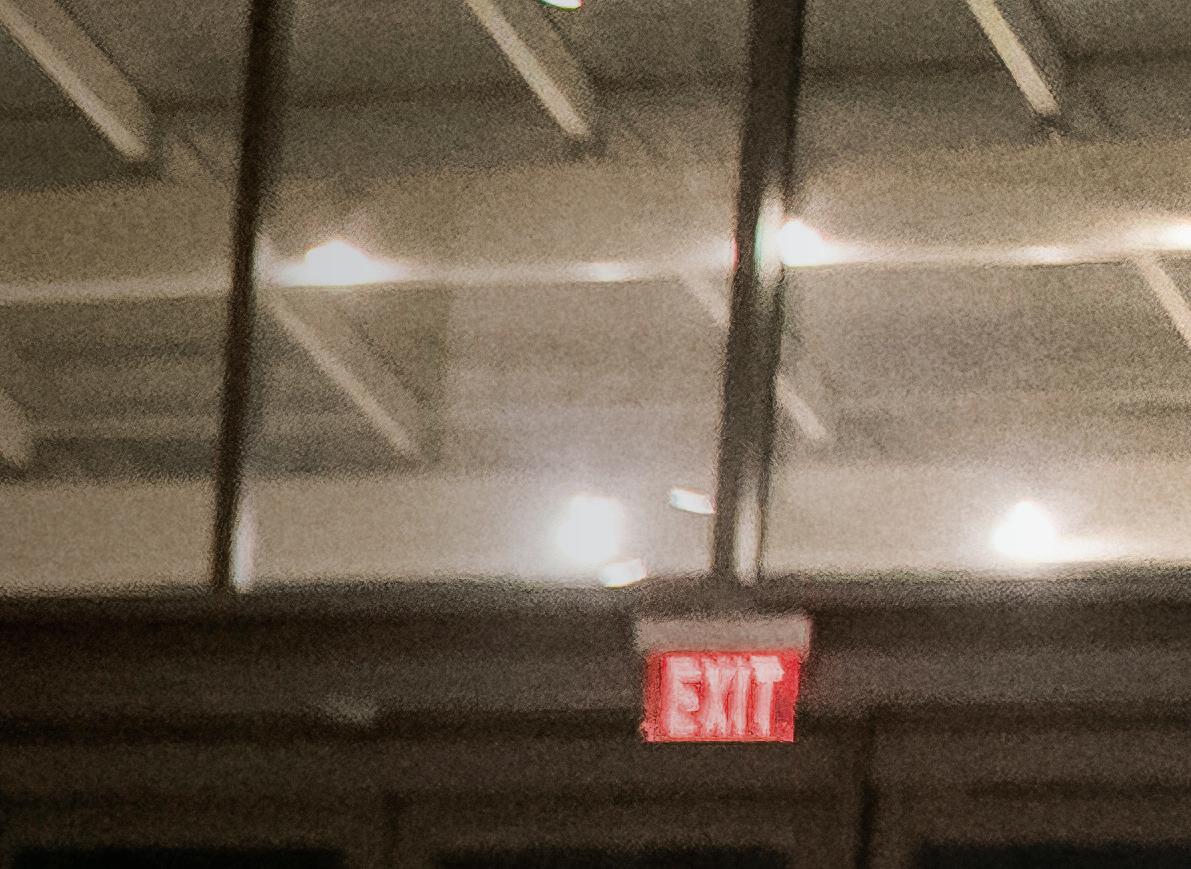


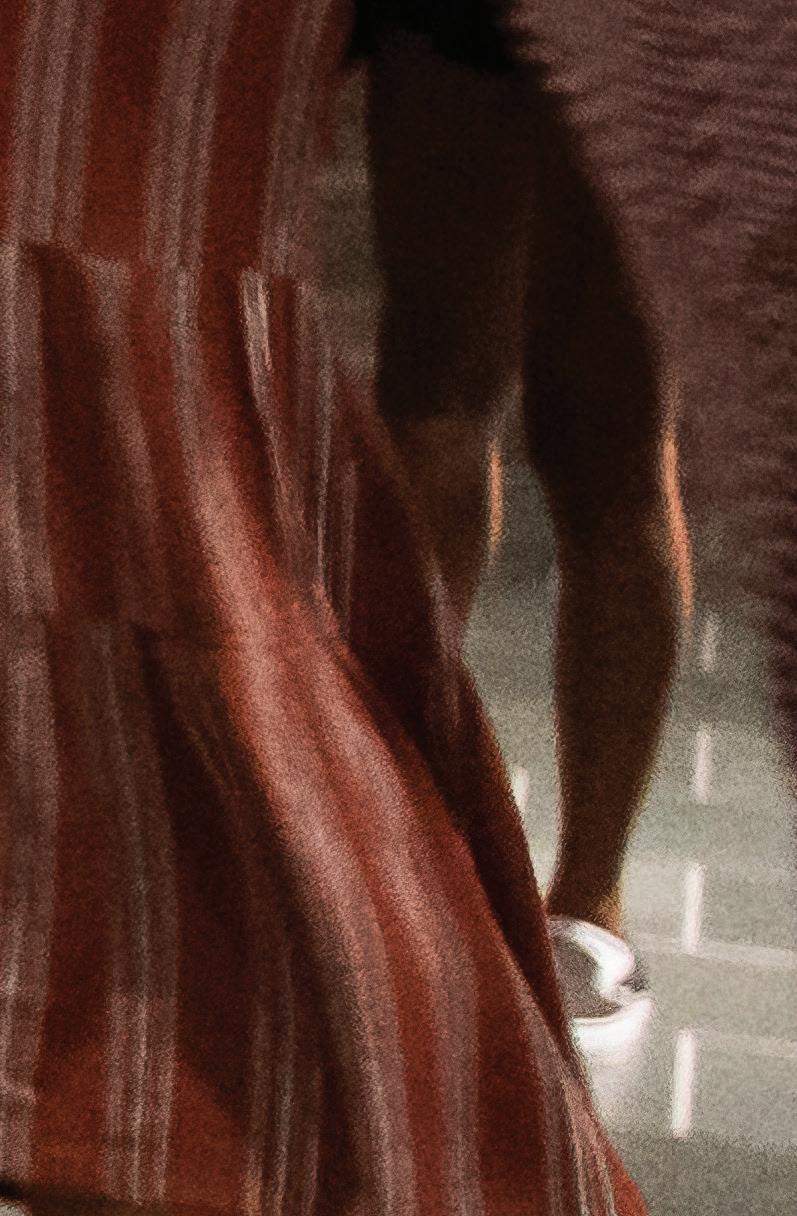


And so it began for the Graham sisters. Playing once more with the same crest over their hearts, they embarked on what would be a three-year journey at Duke. Like any sibling knows, however, the experience came with some growing pains. Some bickering characterized their early collegiate relationship, Maggie said, but after adjusting to life together, the Graham connection began to bear fruit.
Not only did they have the advantage of knowing one another as people, but they reaped the benefits of knowing each other as players. On top of that, the Grahams had a habit of working their sibling magic when it was needed most.
This time last year, Duke was teetering perilously close to laughing-stock status after a pair of seasons with one combined win in the ACC headlined by some very, very bad losses tanked the Blue Devils’ reputation near irreparability. In one particularly bad drubbing at Virginia in October 2021, our Micah Hurewitz likened Duke’s loss to getting hit by a nuclear warhead.
By Mackenzie Sheehy Blue Zone EditorEvery soccer player knows that soulcrushing feeling. The moment the clock winds down and the buzzer echoes across the pitch. The sheer weight of defeat resting on everyone’s shoulders. Hopes of a trophy are dashed while a season comes to a close.
Maggie Graham and Emily Royson are all too familiar with this tidal wave of emotions. In their three years with Duke soccer, the team has concluded each campaign in much the same way — a loss in the NCAA quarterfinals, so close to a College Cup berth. The finale to the 2022 season, however, was extra bittersweet for the two rising seniors. With the referee’s whistle resounding across the stadium after a double-overtime defeat to then-No. 3 Alabama, they rushed into the waiting arms of not just their teammates, but their respective older sisters, Delaney and Jenna. They were in mourning, not for the end of a season, but for the end of an era — a fleeting moment in time where they had the rare privilege of playing alongside someone with a shared last name, shared history and shared experience.
“Once it hit tournament time … my dad constantly reminded us [that it was] our last game together or could be our last game together,” Maggie told The Chronicle. “It would kind of stick with me like, oh, yeah, this might be our last game. [It just] made it mean a lot more.”
Now, as Maggie and Emily bask in the twilight of their Blue Devil careers, they are not just adjusting to life as senior leaders or veterans amongst a sea of youngsters. They are defining their Duke experiences for themselves, creating independent lasting legacies that will forever linger over Koskinen Stadium. Their thoughts, however, are never far from their sisters and the journey that brought them here.
The story of these two dynamite sister duos begins not with triumph and eternal
glory, but with a backyard. While both Maggie and Emily rarely got the chance to share the field with their older siblings before college, they always had a partner with whom they could hone their passing and practice their ball control abilities, even from a young age.
“We used to play in our backyard … when I was four and [Jenna] was six,” Emily said. “So she was probably the person that I got to practice with the most because who else did I have to play with and work with?”
That’s not to say the two sister pairings did not get their share of playing time together before the pressures of the collegiate stage. Maggie and Delaney combined their talents for one year at The Westminster Schools before moving on to other developmental programs. Meanwhile, the Roysons saw the pitch together, but from opposite ends of the field — Emily holding down the fort on defense with Jenna spearheading the attack.
“It was completely new [when we ultimately crossed paths in college],” Emily said. “It was her up top [and] me in the back, but we never ever thought to play on the same team in something serious.”
The two younger sisters, however, were not eager to play collegiately alongside their older counterparts. From the Royson perspective, Emily was not excited to follow in Jenna’s footsteps and go off to Georgetown. Wanting to forge her own path and create her own identity, Emily opted for a completely different school and conference. It wouldn’t be until two years later that their paths would cross again.
Maggie, on the other hand, eventually decided on a college career with her sister. Despite initially nixing Durham as a potential home due to Delaney’s presence, the younger Graham fell in love with life in Blue Devil blue.
“I [wanted] to have my own experience in college soccer,” said Graham. “But then we started getting a lot closer … and I also visited Duke and just knew … there’s no point in not coming here.”
Nowhere was this more evident than the Blue Devils’ second-round NCAA tournament game against Memphis in 2021, when Maggie was a sophomore while Delaney was a senior. In just the 43rd minute, the younger member of the duo received the ball in the midfield and sent a pass forward that sliced open the Tigers’ defense. With their next-level connection, Delaney read the pass and quickly ran onto it in the box before beating the keeper with a drilled and composed shot. That goal was the difference in that game against Memphis, sending the Blue Devils to the Sweet Sixteen with a 1-0 victory.
“That was probably my best soccer memory just because that was cool,” Maggie said. “A little Graham connection and then … we won that game.”
While Maggie and Delaney had plenty of moments like this to refine their shared craft, the Roysons did not. Jenna finished out her undergraduate years as a Hoya before making the decision to finally join the Duke squad alongside Emily for her fifth and final year of eligibility in 2022. Despite the tight adjustment period, the two best friends quickly fell into step, with one major change — Jenna would be joining her sister at the back, creating a center back duo with a literal blood bond.

“It was different having my sister playing next to me,” Emily said. “I felt like I could tell her what to do. I would yell at her and she would yell something back and then she’d be like, ‘Whatever. It’s just my sister yelling at me.’”
The pairing turned out to be a stroke of genius by head coach Robbie Church. Helping the Blue Devils collect 11 shutouts and starting all 23 matches together, the combined aggression and skill of the Roysons made them a stalwart presence on the back line. Any opponent fears a lockedin center back duo, but a pair of sisters is hard to beat.
Together, the Grahams and Roysons headlined a Duke team brimming with talent, ultimately seeing them to the infamous NCAA quarterfinals. Both Emily and Maggie, however, were quick to mention their bond with their older sisters off the field as a cornerstone of their Blue Devil experiences.
“There’s a lot of memories, just knowing that she was always there,” Maggie said.
By Andrew LongClearly change was needed, and in December 2021 the Blue Devils hired then-Texas A&M defensive coordinator Mike Elko as their new head coach. Although his work with the Aggies was eyecatching even in football’s hardest conference, the move was undoubtedly a gamble. It was a bet on Duke’s part that Elko could inject some juice into a wrecked team and begin the program’s rise back into the national conversation it had not participated in since Daniel Jones was quarterback.
Fast forward a year and half: Elko is the reigning ACC Coach of the Year, the Blue Devils are looking to build on a 9-4 season last fall and a shiny new Military Bowl trophy now sits in their cabinet. In July, Elko was rewarded for the turnaround with a bumper new contract that provides additional resources for assistant coaches and keeps the play caller in Durham through 2029.
In a vacuum, Elko’s extension is nothing more than a just reward for an incredible, if not wholly unexpected, season. But after observing the foundational changes in the college football landscape over the last few weeks, I think there’s a second, more existential reason for Duke’s renewed faith in its head coach: safeguarding itself against the choppy seas of conference realignment.
If the rapid disintegration of the Pac-12 and ensuing scramble for spots in the Big Ten and Big 12 has taught us anything, it’s that schools need to present a sporting brand that is attractive to investors if they hope to remain financially viable. Mouth-watering TV money — the Big Ten’s agreement alone is worth $7 billion over the next seven years — provides the biggest incentive to hop on the bandwagon. The Pac-12 has yet to agree a comparable TV deal to either the Big Ten or Big 12, and for it has lost two-thirds of its members to both conferences.

The upshot of this is that schools looking for a bite of the proverbial apple must have a competitive program which adds to the onscreen product to warrant their increased revenue. Schools that haven’t in recent years — California, Washington State, Stanford — have subsequently struggled to secure their places.
As one of the biggest brands in college sports, Duke knows that it can’t risk being one of those schools. It knows it needs competitive football to stay financially viable.
I believe that when athletic director Nina King hired Elko, she saw the writing on the wall that a competitive football program would only grow in necessity in the coming
Low educational pricing giving you the best prices and most current features from Apple, Dell, and Lenovo!
• 3 Years of Warranty Coverage
• 3 Years of Accidental Damage Coverage (some limitations apply)
• Unique ON-CAMPUS support and premium manufacturer support when you are at home
• Loaner Program: Students get a loaner for no charge when your computer needs service on-campus

• On-Campus Authorized Apple, Dell, and Lenovo Service and Repair

Lower Level, University Store, Bryan Center • 919.684.8956
Academic Year Store Hours: Monday - Friday: 8:30am - 6pm | Saturday: 9am - 6pm | Sunday: 11am - 4pm
www.dukestores.duke.edu/cpustore/
OPERATION: Duke Technology Center PUBLICATION: Send Home
HEADLINE: The BEST Place to Purchase Your Laptops DATES: SH 2023
COLOR: CMYK
Come learn more about the Program in American Grand Strategy and hear about upcoming speakers, field trips, and other opportunities to get involved!
MONDAY, AUGUST 28, 2023 5:00 PM
GROSS HALL ATRIUM
CHARLOTTE—Finally, football season is once again upon us.
The annual ACC Football Kickoff was held in July in Charlotte, where players and coaches from around the conference gathered to hold court about the upcoming season. For the Blue Devils, head coach Mike Elko was joined at the event by junior quarterback Riley Leonard, graduate offensive lineman Jacob Monk and redshirt senior defensive tackle DeWayne Carter.
Coming off a remarkable turnaround in Elko’s first season, the excitement was palpable to hear about the new era of Duke football heading into year two.

No room for complacency
After a 9-4 finish — the seventh nine-win season in Duke football history — the team emphasized the importance of focusing on the season ahead and not looking back.
“We didn’t come in to have one positive moment and then kind of let it all go away. We wanted to build a program,” Elko said. “We know for us to be the program we want and to get the respect that we really want … we’ve got to be successful year in and year out. I don’t think we’re there yet.”
Satisfaction is dangerous for teams, especially with the parity of the current college football landscape. The Blue Devils are using the previous season as a stepping
stone, without reminiscing too much on the past achievements.
“We have to build that same foundation that we built last year, and obviously an even better one to take that next step,” Carter said. “The coolest part about it is our coaches do not let us get complacent. We don’t really reference last year.”
“[Coach Elko] is great at never letting me become complacent,” Leonard said. “He is always going to be just like my mom, keeping me humble.”
Leonard referenced a bracelet that he wears made by his mom saying “you suck,” along with asking his mom to bash him in order to increase his motivation. This was a theme for the team at media days: continuing to reference humility in the face of success.
“After touchdowns or after I receive my name on some list that ranks me pretty high, I do look down at [the bracelet] and it reminds me: ‘Hey, don’t worry about any of that stuff,’” Leonard said. “‘Stay humble, kid, and put your put your nose down and work.’”
One of the biggest advantages for Duke coming into the season is its experience and returning production. The Blue Devils are returning 17 starters — the most in the conference. Many players, including Carter and Monk, decided to come back for their fifth year of eligibility, adding continuity from last year’s turnaround season.
“Our ability to retain our best players speaks about what we’re building in Durham,” Elko said. “I think for us to make a statement that really good football players want to stay at Duke and want to be part of not only the program that we’re building, but also the university and the degree that we’re offering, that’s what we hope to build.”
Specifically, every starting offensive playmaker is back, a key for strengthening chemistry and continuing to produce at a high level. Last year, the Blue Devils ranked fourth in the league in total offense and third in rushing yards per game.
“My job is to get the ball to the playmakers and all those guys are coming back,” Leonard said. “So as a quarterback, I’m sitting here smiling because my guys are coming back, and I’m excited to make some plays with them this year.”
The guy “sitting here smiling” also turned in an outstanding season under center after winning the quarterback battle last offseason. Now, with a full offseason as
See ACC KICKOFF on Page 19
NEW COURSE IN SLAVIC
Taught in English: all are welcome!
Taught in English: all are welcome!
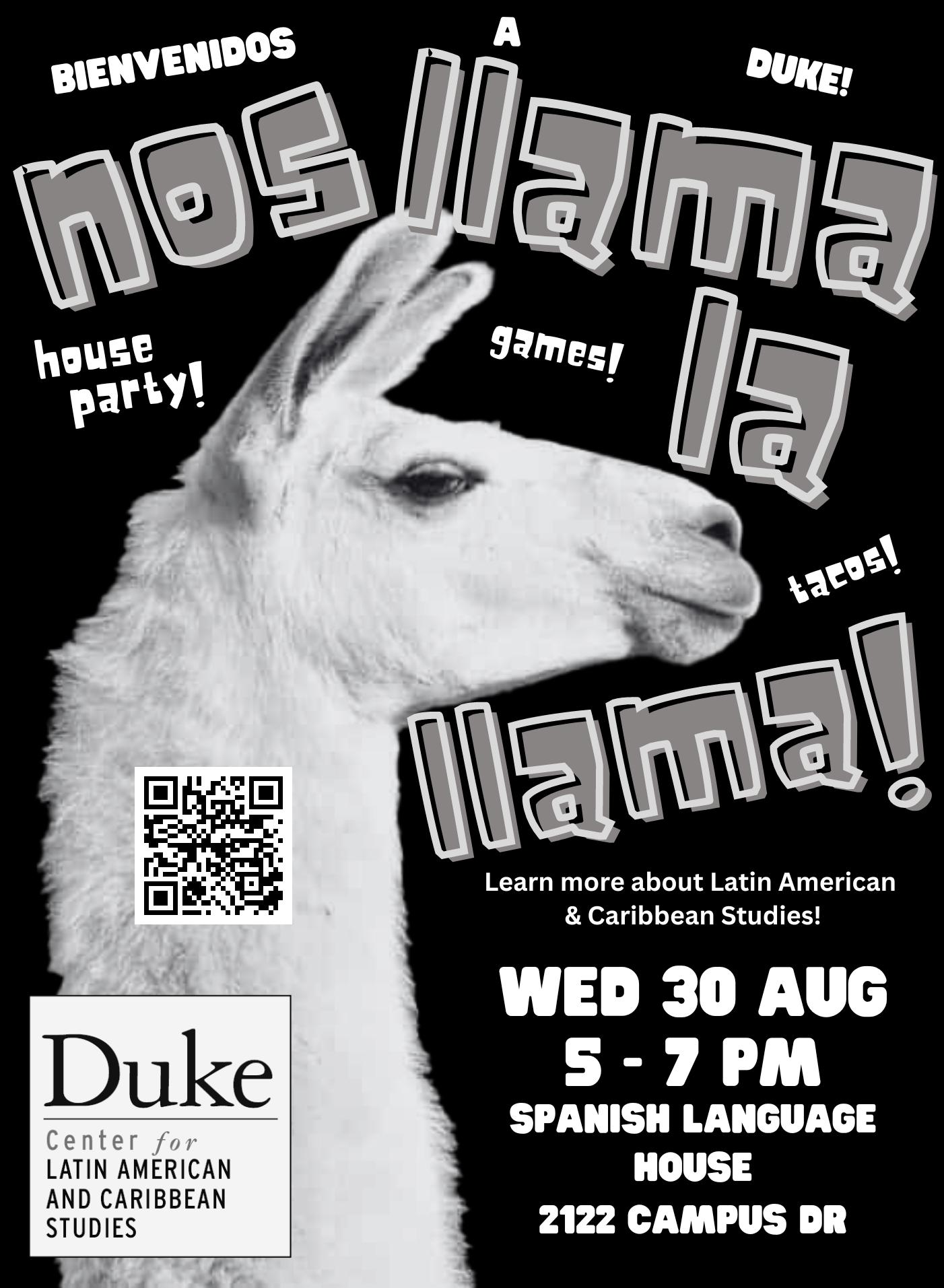

FALL SEMESTER 2023
Languages Bldg, Room 320
Mondays & Wednesdays 4:40-5:55pm
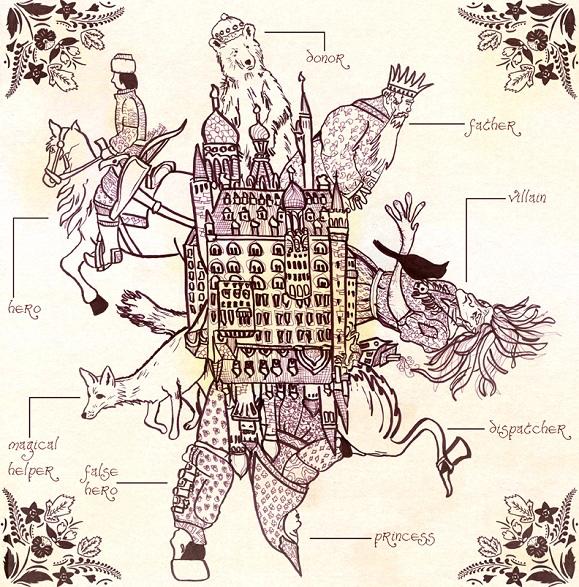
“By the will of the pike, do as I like.”
An Introduction to Slavic Folklore
«По щучьему велению по моему хотению.»
“By the will of the pike, do as I like.”
«По щучьему велению по моему хотению.»
Instructor
Dr. Jennifer Flaherty jennifer.flaherty@duke.edu
Using the popular Russian fairy tale as an entry point, this course offers an introduction to the rich folklore of diverse Slavic peoples. Students gain knowledge of these places of the world while learning the very foundations of the study of art & culture.
‘Who are the folk? Among others, we are!’ | Alan Dundes
CCI | ALP | CZ
Using the popular Russian fairy tale as an entry point, this course offers an introduction to the rich folklore of diverse Slavic peoples. Students gain knowledge of these places of the world while learning the very foundations of the study of art & culture
Who are the folk? Among others, we are!’ | Alan Dundes
FALL SEMESTER 2023
Languages Bldg, Room 320
Mondays & Wednesdays | 4:40-5:55pm
Instructor: Dr. Jennifer Flaherty | jennifer.flaherty@duke.edu
The Department of Russian & Eurasian Studies offers a variety of courses on the language, culture, literature, and history of the Slavic and Eurasian World. For courses taught in English, students may sign up for an additional partial-credit independent study to work on the material in the original Russian. For details, contact todd.lewis@duke.edu or carol.apollonio@duke.edu
CCI | ALP | CZ


FROM PAGE 15
“The night we would go to dinner during the school week, where it felt like we were kind of disconnected from Duke but we were still together, I think was really great.”
Big sisters move out
Despite the magic of playing with a sibling, all good things must come to an end. Delaney and Jenna’s younger sisters now find themselves on their own once more, ready to define this next phase of their soccer careers for themselves. While they are looking forward to being their own people again, both Maggie and Emily have internalized the lessons they’ve learned while playing alongside their siblings.
“One of the things I’ve learned from Delaney was … work ethic is kind of above all things,” Maggie said. “[She] was just one of the people on our team that worked harder than everybody else.”
“I think I learned more about [Jenna] than I did about the experience,” Emily said. “I haven’t been playing with my sister my whole life, so I think it [was] just seeing her in her last year, just learning to cherish the little things, and every game counts.”
As Maggie and Emily stand on the precipice of what is likely their final season in a Duke uniform, their older sisters are not far from their thoughts. If anything, the strong bond that deepened while they played together will last a lifetime. Yet from here on out, the Royson and Graham family names lie in capable hands as the younger sisters embark on their new campaign for a national title.
FROM PAGE 15
months and years. On the back of another non-competitive campaign in 2021, the Blue Devils needed to act fast if they wanted to be ahead of the curve in finding the right candidate to turn the program around. As soon as she saw that bet pay off — with the resources already at his disposal, no less — she locked him in for the long haul.
Bold extensions like this don’t always work — just look at the high-profile, longterm contracts given to Mario Cristobal at Miami and Jimbo Fisher at Texas A&M — but Elko has proven he’s the man for the job in Durham. He turned Riley Leonard into a superstar at quarterback, transformed a porous defense into a unit with the country’s second-best turnover margin and returned his entire receiving corps and defensive line for year two. Were it not for a missed field goal, the Blue Devils would have played in the ACC championship game last year.
Ultimately, success begets faith. Duke’s hand was forced into hiring Elko in the first place, and was forced again to hold onto him once he proved that he had the potential to be the transformational figure the program needs to become, and stay, viable.
With the likes of Florida State, Notre Dame, North Carolina and Clemson on the Blue Devils’ schedule this year and no more divisions in the ACC, Elko and his team’s task is no longer to stay above water, but to compete against the country’s best. Exactly as Duke hoped he, and it, would.
Or rather, exactly as Duke needs him to.
FROM PAGE 17
the starter under his belt and his weapons back, the sky is seemingly the limit for the junior gunslinger.
“[Leonard is] a great leader,” Monk said. “Great, really accurate thrower. He’s extremely athletic. Makes our job, makes my job much easier.”
This is a veteran team, and the immense amount of returning production will give the Blue Devils an edge in experience against most of their opponents this season. This could prove very valuable given Duke’s difficult schedule.
“Experience matters,” Elko said. “We’ve got a lot of really experienced players. The three guys on this stage with me have played an awful lot of football at Duke. We’re looking forward to those challenges.”
Last year, Duke’s rebuild was accelerated by the relative ease of its conference schedule, as the Blue Devils dodged many of the teams that led the pack in the ACC for most of the season. This year, that is certainly not the case, as Duke will match up with most of the top programs in the conference during Elko’s second season at the helm.
Duke’s schedule includes showpieces against Florida State and North Carolina, two teams who figure to be in contention for the ACC championship, as well as perennial powerhouse Notre Dame. The frequency of difficult opponents on the Blue Devils’ schedule will make every game extremely important if they want to contend for a conference championship.

In terms of profile, at least, no win would be more important than the season
opener: a Sept. 4 matchup with reigning ACC champion Clemson at Wallace Wade Stadium on primetime.
“I think being on that national stage is what we want Duke football to be,” Elko said. “Obviously Clemson has been the gold standard in this conference. We’ve not shied away from that this entire offseason, that they’ve done so many things to carry the ACC and be our representative for so long.”
The respect is mutual from the Tigers’ side.
“I think Coach Elko is one of the best coaches in the country … what an unbelievable job he did last year, he and his staff,” said Clemson head coach Dabo Swinney. “They got about everybody back. So it’s going to be a heck of a game, heck of a matchup.”
Although Duke is coming off an impressive season, it will still be the underdog in several of its games this season, especially against those big-time opponents. If the Blue Devils want to show they belong, they will have to find a way to beat the odds and pull a few upsets along the way.
“This whole offseason and last offseason we’ve been embracing the underdog role,” Monk said. “We’re not here to fight it out. We’re not here to stay the course. We’re here to win.”
The bottom line is that Duke’s daunting schedule cannot be changed, and Elko believes his team will be ready to play whoever is on the other side of the white lines.
“I honestly don’t think it’s really important for you to even look ahead,” Elko said. “Of course, there’s always great talent in our conference. But at the end of the day, you’ve got to focus on one week at a time.”
Carter believes the same.
“I’m excited for people to turn on the TV and actually watch us as a real true bluecollar college football team.”
Culture of Tech
Tech Libertarianism
Attention Economy
Ethical Tech Design
Dual Use
Social Media as the 5th Estate

Autonomy, Persuasion & Manipulation
Misinformation
Tech & Democracy
Privacy, Ownership, Access & Control
Surveillance Economy
Ethics of Data Scraping
Daty Privacy Policy Solutions
Big Data & Data Sharing
Health Data
Cybersecurity
Daty Privacy Policy Solutions

Big Data & Data Sharing
Health Data


Cybersecurity
Algorithmic Ownership & Access
AI Fairness
AI Transparency, Explainability & Interpretability

AI Responsibility, Liability & Accountability

AI and the Future of Work
Human Digitization & Deepfakes
Tech Libertarianism
Culture of Tech
The Attention Economy

Ethical Tech Design
Social Media as the 5th Estate Autonomy, Persuasion & Manipulation
Tech & Democracy
As interns who spent their summers at the NC General Assembly, we witnessed the unsettling amount of power wielded by state legislators who proved to be unpredictable and irrational. By offering a synopsis of this legislative session, we hope Duke students will recognize how the decisions being made in that building are directly impacting their lives and others around the state — especially with municipal elections on the horizon.
Abortion Rights
What if we told you that a state legislator’s choice of emojis led to the denial of abortion access to millions of North Carolinians? Just six months after
being elected as a representative to North Carolina’s 12th Congressional District, — which backed Joe Biden by 23 points and elected her with over 60% of the vote — Tricia Cotham publicly announced her switch to the Republican Party. In her press conference, she recounted how the turning point arose when she faced scrutiny for using the American flag and praying hands emojis on her social media platforms. Her defection gave Republicans a supermajority in the legislature, which allowed a restrictive abortion bill to become law without Gov. Roy Cooper’s signature.
Imagine a friend or a classmate having an unwanted pregnancy. The stress and
The Chronicle welcomes submissions in the form of letters to the editor or guest columns. Submissions must include the author’s name, signature, department or class, and for purposes of identification, phone number and local address. Letters should not exceed 325 words; contact the editorial department for information regarding guest columns.
The Chronicle will not publish anonymous or form letters or letters that are promotional in nature. The Chronicle reserves the right to edit letters and guest columns for length, clarity and style and the right to withhold letters based on the discretion of the editorial page editor.
trauma endured when making such a decision are already unbearable as is. With the passing of the Care for Women, Children and Families Act, Duke students and college students across the state with unwanted pregnancies face the additional strain of having to leave the state — a financially unmanageable option for some. Duke students should be able to make their own decisions about their pregnancies, and our legislature has stripped that right from them.
Direct submissions to:
E-mail: opinion@dukechronicle.com
Editorial Page Department The Chronicle Box 90858, Durham, NC 27708

Editor-in-Chief: Audrey Wang
Sports Editor: Andrew Long
Managing Editor: Jazper Lu
News Editor: Adway Wadekar
Senior Editors: Amy Guan, Ishani Raha
Enterprise Advisor: Alison Korn
Editor at Large: Maddy Berger
Photography Editors: Alyssa Ting (Fall), Abigail Bromberger (Spring)
After failing to set independent state legislature theory as precedent in the recent U.S. Supreme Court case Moore v. Harper, General Assembly leaders found other ways to consolidate power in the legislature. For example, SB 512: Greater Accountability for Boards/Commissions takes appointment power for various boards and commissions from the governor and gives it to the legislature. SB 749: No Partisan Advantage in Elections works to restructure boards of elections by removing the governor’s power to appoint members and break ties.
polyfluoroalkyl substances (PFAS), also known as “forever chemicals”, are highly toxic fluorinated chemicals that never break down in the environment and have been linked to cancer, hormone disruption, liver and thyroid problems and reproductive and immune system harm, among other negative health effects. Equally alarming, ingesting contaminated fish from the Cape Fear River poses a severe threat to North Carolinians’ health. Two PFAS-related bills — HB 610 and SB 658 — failed to make it through committees, despite the urgent environmental impacts of this pollution.
Additionally, this year’s annual Farm Bill flushes nature’s filters down the drain. The N.C. Farm Act of 2023 reclassifies protected wetlands to only those “adjacent to bodies of water.” Thanks to the Home Builders Association, who lobbied for the narrow definition, as many as 2.5 million acres of vital wetlands are open for development in North Carolina. Since 2017, this PAC has emerged as one of the leading donors to state legislators, generously donating over a million dollars to the governing body.
Inc.
SB 747: Elections Law Changes, which passed in the Senate and is sitting in the House, will introduce a two-factor authentication process and signature verification for absentee ballots cast by mail, eliminate the three-day grace period for mail-in ballots, and expand who can challenge the eligibility of another voter. We are saddened by the passage of these bills, which diminish the power of the voter and the executive branch while awarding more power to the General Assembly.
Johns Hopkins University conducted a survey of 1,500 Americans, highlighting the general public’s lack of knowledge and interest in state politics. Of those surveyed, less than 20% could name their state legislators. A third couldn’t name their governor. More than half didn’t know if their state had a constitution. The lack of media coverage for state politics, especially during such a unique presidential campaigning season, has made many less aware of how state government severely impacts our lives.
Recess Editors: Jules Kourelakos (Fall), Anna Rebello (Spring), Derek Deng (Spring)
Opinion Editor: Viktoria Wulff-Andersen
University News Editors: Holly Keegan, Jothi Gupta, Senou Kounouho
Local/National News Editor: Audrey Patterson
Associate News Editors: Andrew Bae, Ishita Vaid, Kerria Weaver, Mia Penner, Michelle Brown
Features Managing Editor: Zoe Spicer (Spring)
Audio Editor: Aida Guo
Digital Strategy Director: Katie Tan
Diversity, Equity, and Inclusion Coordinators: Anisha Reddy, Milla Surjadi
New Reporter Coordinator: Kathryn Thomas
Social Chair: Ayra Charania
General Manager: Chrissy Murray
Advertising Manager: Megan Haven
Creative Manager: Julie Moore
The Chronicle is published by the Duke Student Publishing Company, Inc., a non-profit corporation independent of Duke University. The opinions expressed in this newspaper are not necessarily those of Duke University, its students, faculty, staff, administration or trustees. Columns, letters and cartoons represent the views of the authors.
To reach the editorial or business staff, you can find contact information on dukechronicle.com. To reach the Advertising / Business Office at 1517 Hull Avenue call 919-684-3811.
@ 2023 Duke Student Publishing Company
The legislature is also eradicating critical natural infrastructure and failing to address serious environmental issues. By consuming tap water from your Duke residence hall, you unwittingly ingested PFAS-contaminated water. Per- and
Over 17,000 students are enrolled at Duke University, and over 560,000 students are enrolled in North Carolina colleges. The ability to cast a vote isn’t just a privilege; it’s a responsibility that empowers us to influence the direction of our communities and the policies that impact our lives. It’s also a constitutional right that state legislators are attempting to limit for college students. It is imperative that these legislators are held accountable for their actions and that college students cast their ballots in the upcoming municipal elections this fall.
Katherine Gallagher is a Trinity junior, and Holden Buchanan is a Trinity senior.
“ hot take of the week “The Barbie movie wasn’t that great.”
—Audrey Wang, Editor-in-Chief, on Aug. 19, 2023
As students, the question of how to live feels unavoidable. Do we choose passion or success? When “success” is defined in very limited terms, it’s easy to feel like your self-worth is determined by your resume of accomplishments. You push yourself for a goal that feels handed to you, all to burn out. Then you fall into a cycle of working and falling apart and working harder to recover.
We cannot continue like this. We must pursue a relationship with time that prioritizes passion and rest. For this, we have a lot to learn from Latino culture.
My grandparents were part of the 1960s counterculture movement in New York before moving back to Colombia. “We felt for many years how important it was to [live] slowly,” my grandparents tell me, reflecting how Latinos embrace interrelational passion and slow living. In my grandparents’ Colombia, time is fluid. They sleep in, savor food and show up late to events. “If we didn’t do this today, oh well, we’ll do it tomorrow,” my grandparents tell me. They don’t worry about constantly moving toward the next thing. They embrace rest and live soulfully.
I observed this from them growing up, but it feels like I’ve moved far from their roots. As a student and activist, I often praise “hard work.” I work hard to be a part of systemic change. Yet, I am painfully aware of the way my eagerness to work is revealing my fractured relationship with time. All around me, I see people overworking themselves for a system that demands energy without
intentionality. I realize that I too am part of the problem.
I get why we frantically rush from one moment to the next, fueled by adrenaline, glorifying the grind. Our reaction to the fleetingness of our lives is to treat time as a precious resource, saving and maximizing it as we do with money. We lose touch of the purpose of such a reaction — to share the best life while we can.
Redefining time starts by understanding that this treatment of time is a constructed and severely flawed tenet of American capitalism. Capitalism is fueled by trust in the rewards of an investment through time, and the commodification of time for productive accumulation of capital. Treating time rigidly and linearly is therefore essential for the continuity of capitalist production.
This treatment of time is not universal. In fact, international scholars have identified two cultural approaches to time: monochronism and polychronism. Western capitalist time is monochronic. In other regions, mainly Latin America and the Middle East, time is polychronic. Polychronism embraces fluidity, cyclicality and community. You balance the needs of family and friends and negotiate time interpersonally.
Monochronic time has us believe there is only one pathway towards the future. This means dominant narratives — such as what constitutes an idealized post-grad career — take over from the plurality (“poly”) of possible futures we could hold (passion!). Monochronism is also problematic because it neglects that there have already been
apocalypses of other worlds — oppressive actions have “pruned” the possible futures of the oppressed.
We have been conditioned to believe, in a mathematical sense, that Time - Work = Rest. Work becomes the default while resting becomes a sacrifice of efficiency. My grandma shows me another path. She tells me how she’d walk to work instead of taking the subway. Some days it would rain, and she’d arrive drenched. But this made her happy and helped her resist the urge to fill time with something more “productive.” Not a break from work, but an embrace of passion outside any capitalist framework. This is rest for my grandmother.
If you really think about it, the only choice we have is rest. To avoid burnout, be happy and build communities that care for each other, we cannot choose between success and passion, or work and rest. We are not here to generate the most value by taking advantage of the way the world works. If we continue to believe this, our grind culture will never end.
Rest is a way of welcoming imagination and boredom (remember that?!). It is a practice of detaching your emotional health from the labor you do. “Not limited to the bed and its reclinations, rest is also playfulness, the reach for pleasure outside of and away from the commodification of our bodies,” Colombian poet and scholar Heidi Andrea Restrepo Rhodes wrote.
Importantly, rest cannot be a fetishization of irresponsibility. It is absolutely not a call for passivity. “Rest is a cultivated absence; it is not escape or luxury or relinquishing political life
and accountability to the world,” Rhodes affirmed. I fiercely believe we can rest slowly while upholding urgency for issues that demand action.
My grandparents tell me the counterculture movement was “less imaginative as it was resurrection.” They were not protesting for an impossible future, but for buried and devalued ways of living that still exist around the world. Rest, too, we must resurrect. “We don’t have to be burned out, sleep-deprived, painfully exhausted” to resurrect rest. We must drink not only when parched.
Rest can be unsettling. I remember my frustration when my grandparents would tell me to “eat slowly.” “¿Por qué comes tan rápido? No hay prisa,” they’d remind me. Little Luna was already tired of waiting. She wanted to finish eating and go paint. She wanted to finish high school and go to college. She wanted to finish being a kid and do important things. Convincing ourselves to rest is challenging, especially when our surroundings or internalized beliefs make the cost of rest too high to pay. It is also frustrating to pick apart true communal rest from the commodified, individualized and privatized self-care we increasingly see as companies co-opt the societal importance of passionate relaxation. But rest is not a privilege; it is a necessary right.
During my FaceTime, my grandparents would stop to quibble or correct each other or laugh about something the other said. They’d go off on tangents, and I’d look at the clock and stress about how an hour and a half had passed and how hard this would all be to transcribe.
And I’m left thinking about how far I have to go — how far we all have to go — to truly embrace a relationship with time that allows us to heal.
Luna Abadía is a Trinity sophomore.
On Tuesday evenings, I sit in a classroom with twenty-some students and a librarian. While we chat, the room remains quiet. Our hands say: how are you? Exhausted. (Two clenched fists, releasing outwards with an exhale as the shoulders slump). Last week, a classmate shared that they saw an alligator eat a chihuahua down the street. Jaw drop! They explain: I live in Florida.
This ASL & Deaf Studies house course is limited to 18 students, but an extra handful show up weekly out of interest. Emma Runia ‘23, former president of ASL Club, and Lily Elman ‘23 co-teach this course. Thanks to them, this is the first semester students are receiving credit for learning ASL. Unfortunately, due to the unresponsiveness of the administration and Trinity Language Council, it may also be the last.
American Sign Language should be formally taught at Duke because it is practical, increases accessibility, and contains a rich history and diverse community that students would benefit to learn from. Languages are inherently tied to cultures, values, and identities. If Duke’s curriculum continues to neglect ASL, whose stories are we missing?
More than 10 million Americans are deaf or hard of hearing. Half a million Americans use ASL as their native language. An increasing number of universities comparable to Duke offer ASL classes, e.g. Stanford, Cornell, Yale, Brown, UVA and UPenn established ASL and Deaf Studies minors. Linguistic scholarship on signed languages (in addition to spoken) broadens our view of what language is and how it can or should be taught.
Moreover, teaching students to sign can make campus more accessible for d/Deaf family and friends, for Durham’s d/Deaf community, and for people with limited oral communication from developmental disabilities. Advocating for ASL also initiates dialogue regarding disability. Even within the Deaf community, individuals disagree on whether d/Deaf people are disabled. This incongruity may arise due to two contrasting models of disability. The medical model says people are disabled by impairments; the social model says disability is caused by how society operates (our normative catering towards hearing people creates barriers that disadvantage, restrict, and thus disable the deaf population).
As Elman explained: “If people understand sign language, then deafness isn’t necessarily a disability. [Signing] prevents this social barrier. There are
very few social barriers that individuals can work to change, but this is one of them. I can make spaces accessible for the d/Deaf by [learning ASL].”
While Duke has taken steps to raise awareness surrounding ASL, their commitment to disabled students and the Deaf community falls short. The language department demonstrated its commitment to accessibility when they altered foreign language requirements for students with disabilities. However, accommodations like this often benefit wealthy students who can afford diagnoses. The language council should consider which minority students remain left out.
Earlier this year, Runia and Elman presented why ASL should be a language class to Duke’s Trinity Language Council. The council suggested an ASL Awareness Week, which included a sign-in on Abele Quad, speaker event, and screenings of CODA and Signing Black in America. Duke then advertised ASL Awareness Week on Duke Today and Instagram, where one commenter applauded: “nice job Duke university proud of you for giving asl class.”
Runia and Elman express indignance towards the comment since Duke was in fact not offering ASL class; the point of Awareness Week was to advocate for
classes. “ASL week was exciting and it was nice to have support from some faculty, but it felt like [Duke was] taking advantage of our passion,” Runia explains.
Alum Julie Walkup ‘90 reached out to Runia after seeing the Awareness Week posts. At Duke she had started an ASL club, hosted silent dinners, and advocated for classes. Three decades later, we’re in the same place; support from Duke’s administration and language council remains lackluster. Runia says, “we are still trying to figure out who to talk to. Duke admin is changing a lot… It’s confusing because people you build relationships with, people who tell you things like ‘ASL is coming,’ move and are not here anymore.”
Duke has a reputation in the community of not being d/Deaf friendly. We need to create a space that listens to and understands them. Teaching ASL affects not only students but sends a message beyond Duke. Classes taught, professors hired, and programs that receive funding reflect who schools care about. I want to see non-performative change in our curriculum, creating a space where the Deaf community and ASL speakers are openly welcome.
Jocelyn Chin is a Trinity senior.

ETHICS/PUBPOL 89S (ALP, EI) W 1:25 – 3:55PM
Michael Kliën & Brooks Emanuel
In order to create a better world, you have to be able to imagine something different than this one. That’s much harder than it sounds. Learn how. Co-led by former Georgia legislative director & civil rights lawyer Brooks Emanuel, whose post-law career is focused on helping workers on the front lines of law, policy, civil & human rights recharge and think more creatively to extend their work. The seminar is co-led by Michael Kliën, an experimental social theorist and choreographer whose work is exhibited worldwide.
THEATER/ETHICS 89S (ALP, CCI) TTH 10:05 – 11:20AM
Johann Montozzi-Wood
We engage in performance all the time, whether we’re aware of it or not. Research doesn’t only happen with test tubes. Learn how to creatively & collaboratively research space, bodies, interactions. Basically your whole experience. Join Prof. Johann Montozzi-Wood for a seminar that will expand your understanding of how to examine your surroundings & how to work together.
HISTORY/GSF/SXL/ETHICS 89S (SS, CCI, EI) W 1:40-4:10PM
Why has sex has become so central today? How has the role sex plays in media, politics, & society changed through time? Engage with these questions by watching and producing film and video, examining critical writings about the history of sex in society, and creatively analyzing the importance of the history of sex. There are no term papers & no exams. Instead, you will work with a professional filmmaker to make a film. You don’t need to know anything about production. She’ll work closely with you to get hands-on experience, so you’ll leave the class with the ability to express your ideas through film and video.
have gained followings by documenting their lives as college students.
Student-athletes have also made use of TikTok to grow their public platforms. Women’s basketball player Emma Koabel, a sophomore, is nearing 700 thousand followers on the app, while men’s basketball player Jacob Grandison, a graduate student, amassed 48 million views on a single video. Emily Cole, a senior on the track team, has more than 300 thousand TikTok followers despite her sport’s smaller public profile.
Dinin hopes to cultivate community among social media personalities at Duke beyond the classroom. In the fall, he’ll help launch the Creator Lab, “a gathering place for students interested in content creation.”
CONTINUED FROM PAGE 3
was presented with a choice between staying on the second floor or moving to the bottom floor. Few student representatives were available to vote at the meeting, as it was convened after the school year ended.
According to Coward, staying on the second floor would have meant a clearer timeline and faster renovations, but all student groups’ wants would not have been met. Meanwhile, a move to the bottom floor would have denoted a “higher chance that everyone would be happier in the long run,” without a set timeline.
Student Affairs wrote that while the Committee worked with architects on potential remodels that could make the Student Group and Affinity Lounge “a better fit,” the square footage and “barriers to redesign” made it difficult to come to a clear solution.
“We’re just kind of trying to create a community that has benefits for creators on campus, whether that be exclusive speakers to come in for creators to attend … or even private dinners hosted by I&E,” said Hauser, who sits on the lab’s executive team.
Dave, another executive team member, added that the ultimate goal is to create a physical space for content creators, which might take “a few years” to implement.
Above all, Dinin sees content creation not just as a lucrative opportunity for students, but as a service to society.
“We have moved into an age where the way you get your knowledge of the world is via platforms like Instagram and TikTok and LinkedIn,” he said. “If you have people curing cancer, there should also be people making sure the world knows that we cure cancer.”
According to the space representatives, the logistics behind the moves are still to be decided, including space distribution. Meza said that space representatives were told that since the larger acreage of the bottom floor compared to the second floor meant that student affinity groups as a whole would be getting more space, but that it is still unclear what the space’s distribution would look like.
“It’s really difficult to gauge right now, how students feel with everyone being off campus and with this decision being so unclear,” Meza stated. “As far as I know, most of our communities are aware of these changes as of now and just expecting, I guess, for this to develop a little bit more.”
Barrett and Coward both conveyed that they were “grateful” to have a space, given that SOCA did not have a space in previous

CONTINUED FROM PAGE 1
Back on the East Campus main quad, there’s a line of cars so long that it fills up the loop and stretches out onto West Main Street.
First-year Kushi Jakati and her parents are taking a break, sitting on the bench outside Brown dorm. Jakati, who’s just finished moving in, is from Greensboro, about an hour-long trip from Durham.
Jakati is looking forward to doing a lot in the coming days. She’s only visited campus for an hour during Blue Devil Days and says she’s still getting the lay of the land. She plans to study computer science, and her curiosity has been piqued by Duke’s cybersecurity and cyber policy programs.
But first, she’s most looking forward to taking a nap after two hours of setting up her room.
years. Coward noted that the bottom floor in particular provides more visibility and a larger base for SOCA programming.
Others expressed concerns about the execution of the move given the limited information available to them.
Ngo felt that the initial move from the bottom floor to the second floor “caught [students] off guard,” pointing out that the move relied on students invested in AAPI Base or the Asian Students Association to “take on that labor” of moving and organizing.

“And now that we’re moving back to the first floor, it’s a little frustrating because it’s like, ‘Okay, so what was the original move for if we’re just going back down?’” Valdes said. “Now that we’re going back down, and we also don’t know when and what it’s going to look like, it feels like [Duke] can’t find a place to put us.”
Her father, Shekar, says that saying goodbye “has not set in yet.” He hopes that his daughter will take advantage of Duke’s academic opportunities and achieve her goals. Her mother Pallavi interjects, adding that she hopes that her daughter will “be happy.”
First-year Rachel White and her parents are unpacking in her West House dorm.
White, a born-Blue Devil, is practically a Duke native already. Her mother, Michelle, was a Duke undergraduate and a member of the Class of 1992, and her family is from Asheville. As a result, Rachel has been coming to campus for basketball games and her mother’s reunions for years.
She’s looking forward to continuing to attend games in Cameron Indoor Stadium and getting involved with Jewish life on campus. All of that boils down to the community at Duke, Rachel said.
Though she’s followed her mother’s footsteps in college choice, Rachel’s experience will be just a tad different. For one, she’s enrolled in the Pratt School of Engineering and plans to major in mechanical engineering, while her mother was a zoology major in Trinity College.
Campus has changed quite a bit since then, Michelle recalls. She remembers that back when she was a first-year, the engineering quad consisted of two buildings — Hudson Hall, which opened in 1948 and the Teer Building, which opened in 1992.
Above all, Michelle hopes that her daughter will be “happy and healthy.”
“It makes me excited that she is here and she’ll have a different experience,” Michelle White says. “I know she is in a safe place … she’s ready to fly.”

But before she can fly, she has to finish unpacking.
Editor’s Note: This article has been edited and condensed for print.
pre-med track, but quickly realized that he couldn’t see himself “grinding on that for the next twenty or thirty years.”
Instead, Julien decided to chart his own path, pursuing his long-time passion for film and changing his major to visual & media studies with a concentration in cinematic arts.
In industries like filmmaking, Julien noted that there is no one path to success. To succeed, “you just got to go out there and just squeeze through the door that’s slightly open,” he said.
Nevertheless, Julien recognizes the security in pursuing careers on wellbeaten paths. While some of his peers are “set for the next four years of life,” he joked that he doesn’t know “what [he’s] doing in December.”
Still, Julien is not worried about this uncertainty and is excited to enjoy the journey.
“I’m going to be making movies for the rest of my life. That’s awesome,” he said.
While some students like Julien choose to pursue careers out of passion, Victory said that he has seen other students funnel into more popular industries “because they felt like everybody around them was doing that, and they felt like they were missing something.”
Victory also added that for individuals with a limited income background, career decisions are often driven by finances instead of by interest.
This was the case for Kyle Melatti, Trinity ‘22, who started working at the consulting firm McKinsey & Company following graduation.
“I wanted to be a lawyer someday, and I knew that you couldn’t go to law school with zero dollars in the bank,” Melatti said. “Ultimately, it was a financial decision where I had to decide how I [could] make a little bit of money between graduating undergrad and actually going to law school.”
Although it was not his ultimate motivator, Melatti noted that he felt pressure with his public policy studies major to “follow the herd” and enter consulting. He joked that it was difficult to not hear the words McKinsey, Bain or BCG “almost every day, if not every hour” while at Duke.
Although it may sometimes be difficult to forge one’s own path, Melatti feels that Duke empowers students to succeed postgraduation in whatever field they pursue.
“I do think that if you are dead set on becoming a doctor or becoming a lawyer or becoming an engineer, Duke will be the place that will set you up to do that,” he said. “You can absolutely forge your own path, you can make your own major, you can become whoever you want to be.”
According to Victory, Duke students often believe that their major must align with the job they hope to pursue after graduation — but this is not always the case.
“Employers are less and less interested in the major; they don’t care. It’s the degree from Duke and the Duke experience that sells you,” Victory said.
From Melatti’s experience, Victory’s statement holds true.
“It was a totally mixed bag at McKinsey … I think, if anything, I knew less [economics] and finance background folks than I did liberal arts folks,” Melatti said. “I think that was actually a really strong benefit, because you never know what type of background is going to be the best to handle a certain problem or solve a client’s needs.”
Still, Victory feels that Duke students are reluctant to buy into this idea. In his opinion, Duke needs “a significant culture shift” to divorce students’ senses of identity from their majors.
Victory noted that a caveat exists for international students, who must often major in STEM disciplines to meet the requirements of Optional Practical Training work authorization.
Gen Z’s professional future
Victory believes the trends towards post-graduate careers in technology, finance and business might change in the near future as the demand for jobs in industries like green technology, sustainability, artificial intelligence, social media and data science grows.
Victory also pointed to Generation Z’s career priorities as a factor driving changes in employment trends. According to a Handshake survey, Gen Z workers value work-life balance, opportunities for promotion, benefits that support flexibility and mental health, community culture, DEI commitments and social responsibility.
Social responsibility was an important consideration for Melatti, who worked on McKinsey’s social, healthcare and public entities practice.
“I felt consoled to know that I could still serve the public interest, even in the private sector,” Melatti said.
Melatti recently left his job at McKinsey to enroll in Sponsors for Educational Opportunity, a pre-law program that prepares students for law school, before attending the University of Chicago for law school. After law school, he hopes to work in government and ultimately run for political office in his home state of Nevada.
“I want to go into public service after I graduate. That’s been my motivation. That’s why I was a public policy major. I’ve always wanted to give back to the communities that made me who I am today,” he said.
Aside from Gen Z’s focus on having a positive social impact, Victory noted that the changing emphasis on work-life balance has steered some students away from fields with long working hours, such as investment banking.
Victory also predicted that many Gen Z students will have “side gigs” that allow them to complement permanent employment. He hopes this may give students some flexibility in pursuing careers that do not pay as well.
Ultimately, the Career Center hopes that with more robust data collection will come more information and transparency about not only recruitment, but the rich and varied paths Duke students take after graduation.
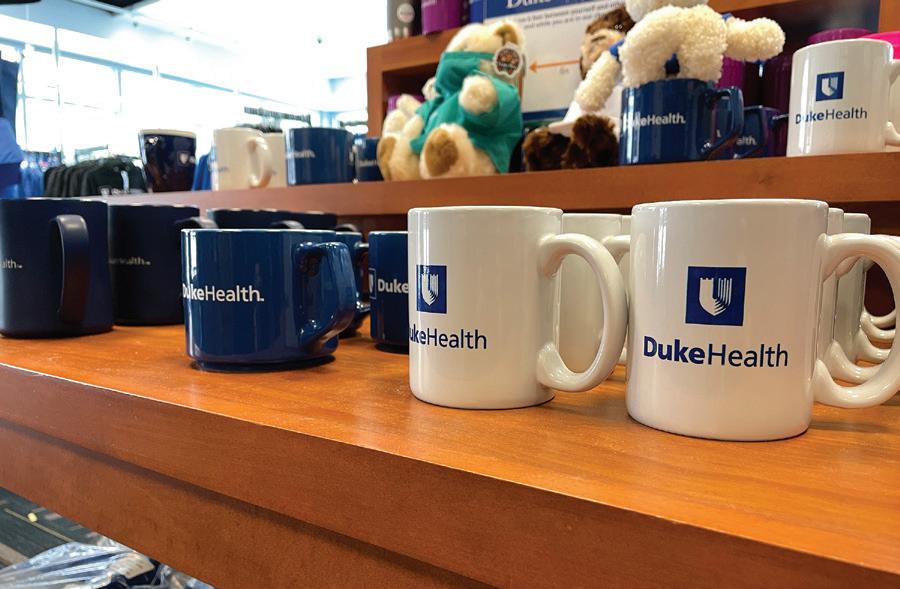
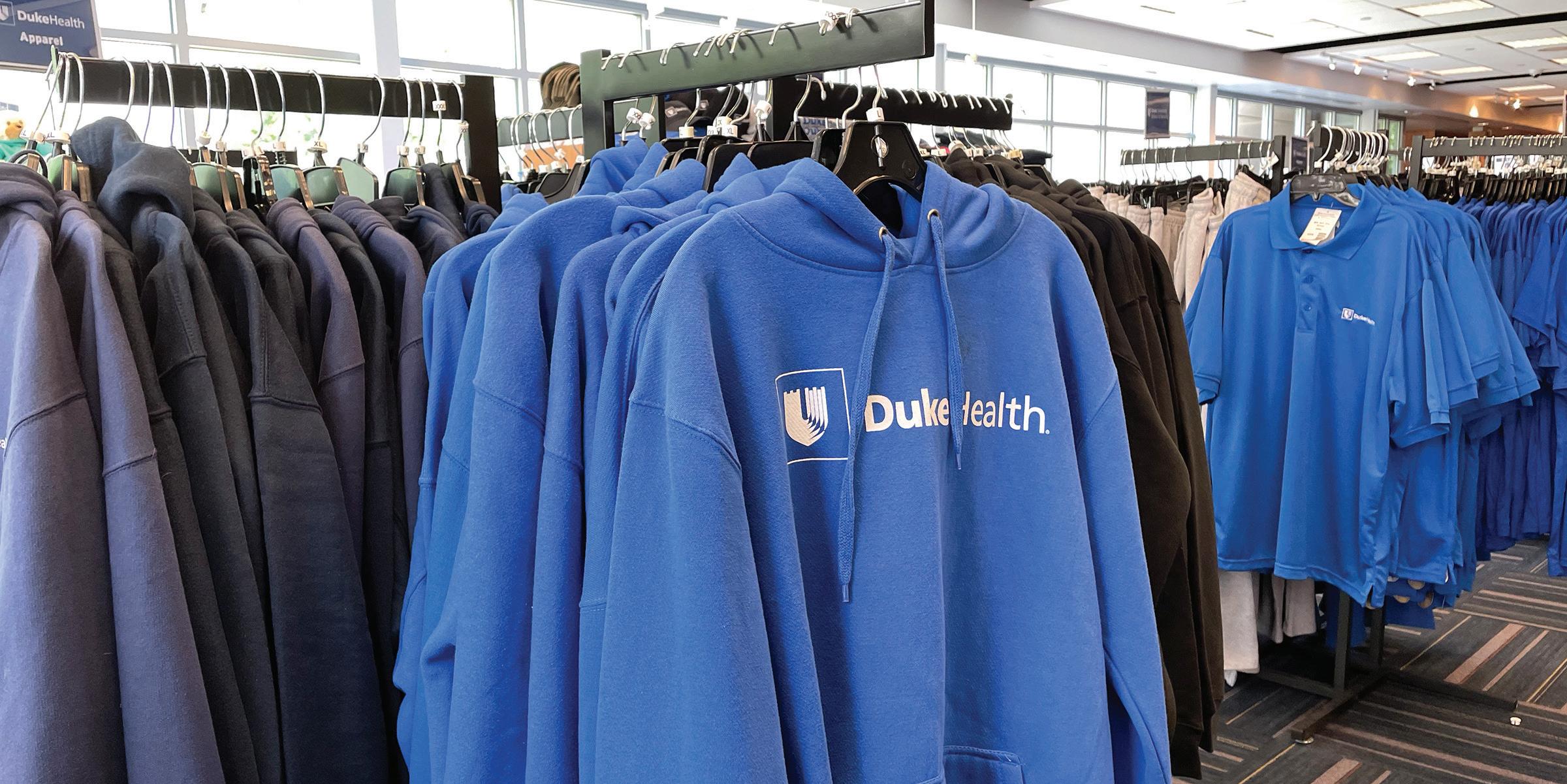
“What deeper, more comprehensive data allows us to do is to give more of those examples about the alum who made it as a Broadway producer, because that was their dream,” Victory said. “Here’s other people who are doing really great things in the fields that our students are interested in.”
•
• GIFT ITEMS
Stop by our beautiful location on the lower level of the Duke Clinic in Room 0001 near the food court. Parking is available in the parking garage on Trent Drive adjacent to the Duke Clinic. The store provides instruments for students, faculty and staff of the Medical Center. The store also carries a wide selection of Duke and Duke Health clothing and gift items, office and school supplies, scrubs & lab coats, alumni chairs and childrens gift items. Room 0001, Lower Level, Duke Clinic | 919.684.2717 | Monday - Friday: 8:30am - 5:00pm

